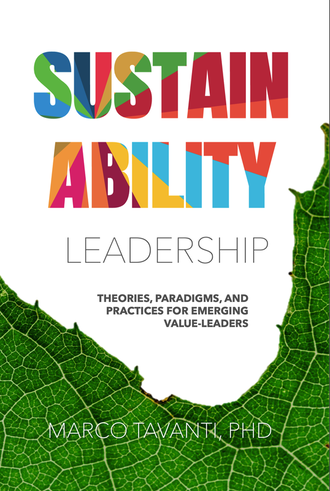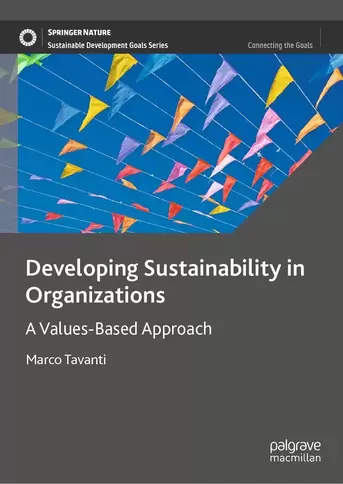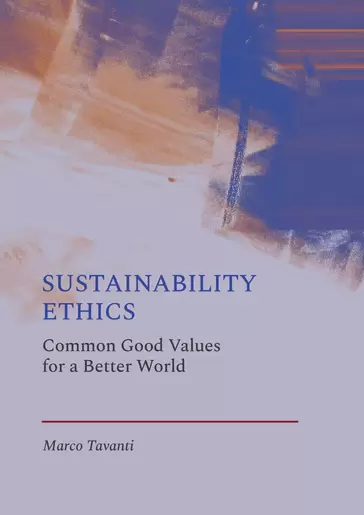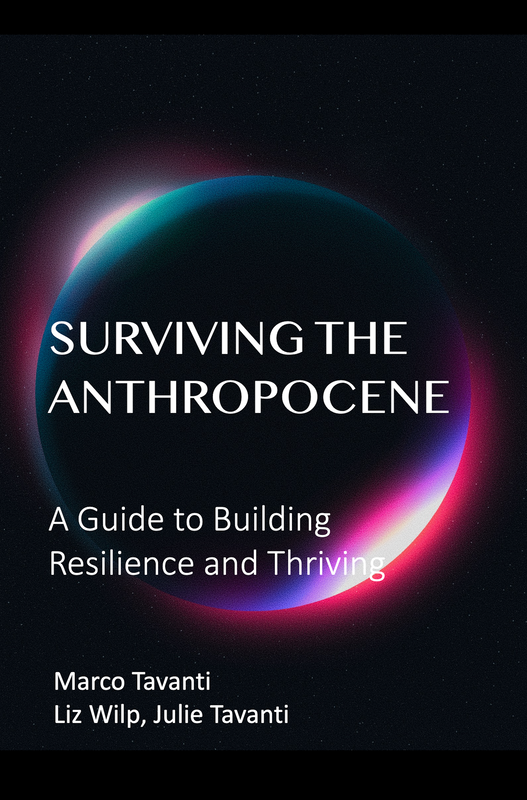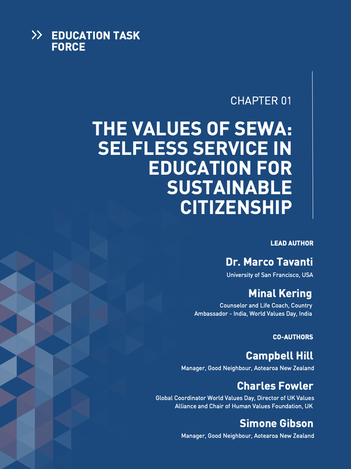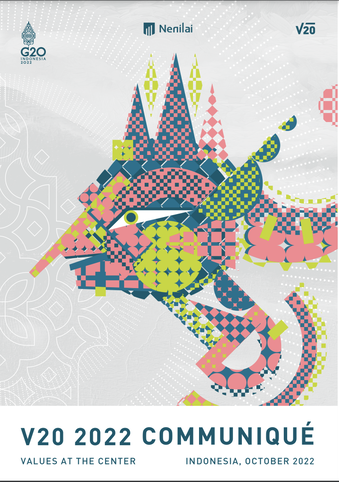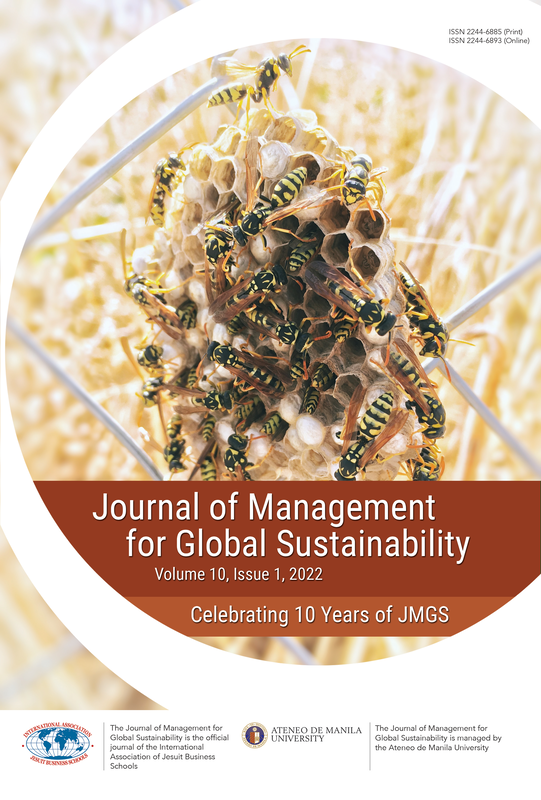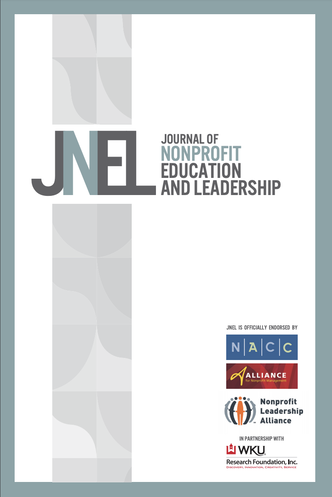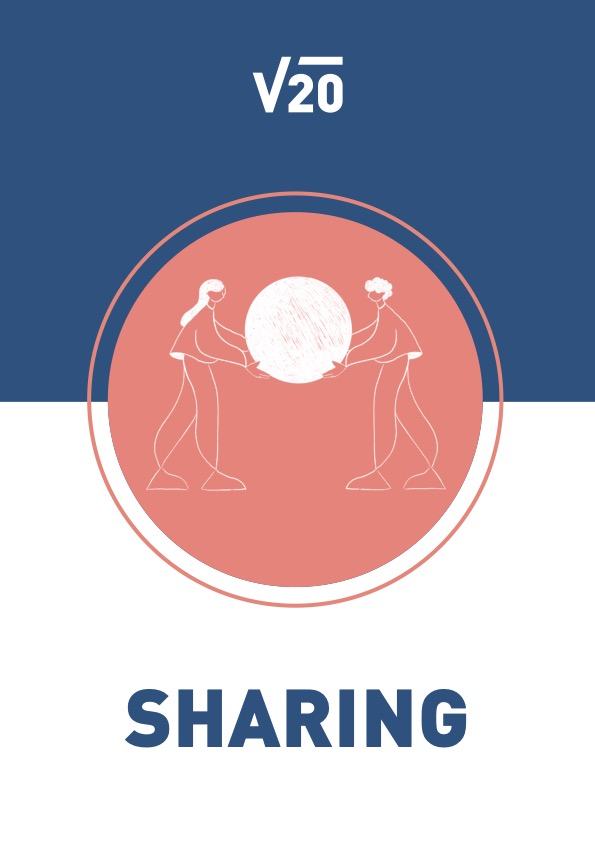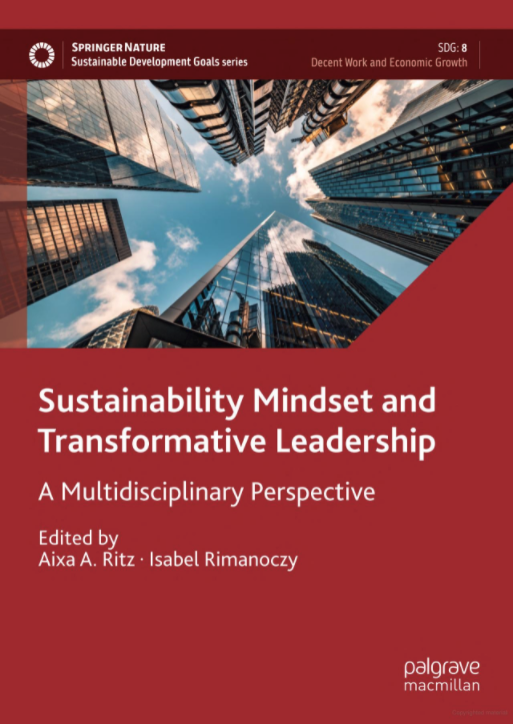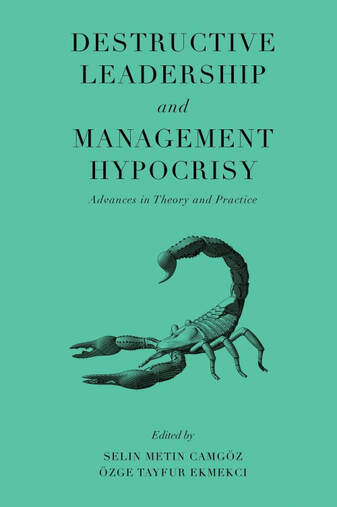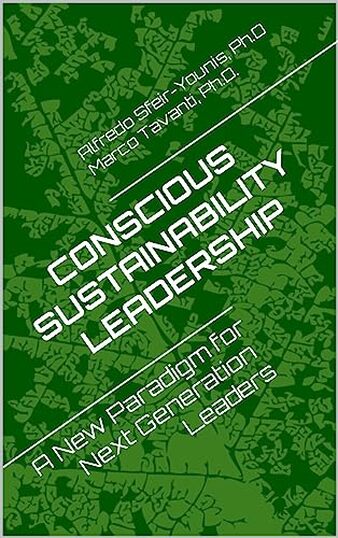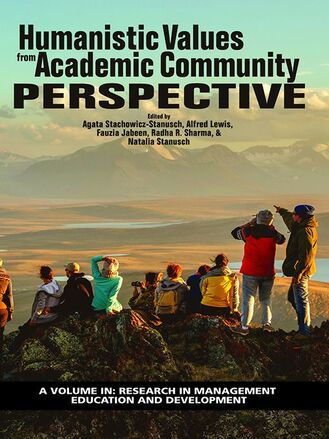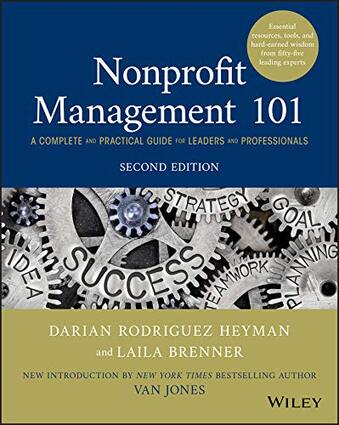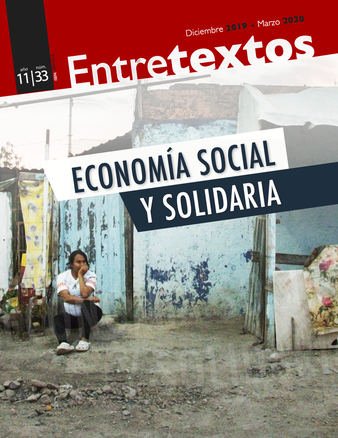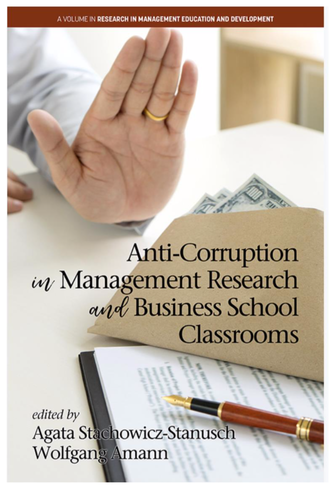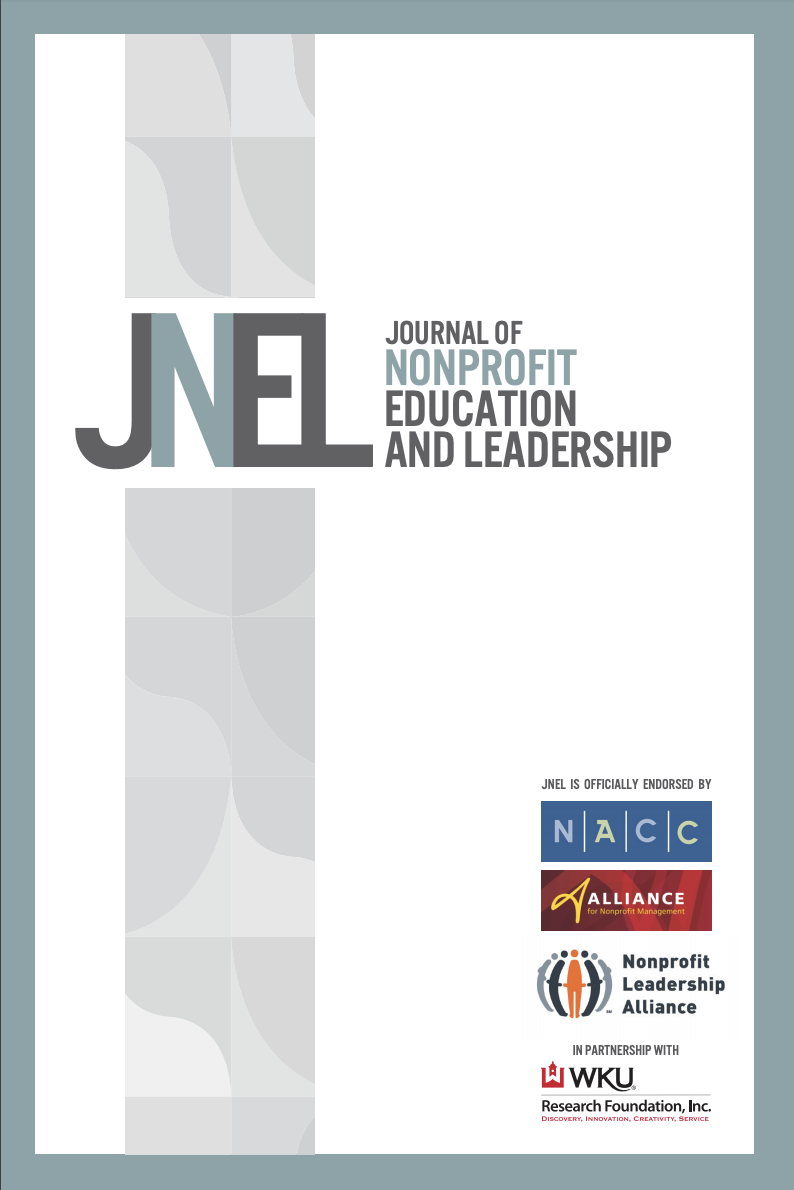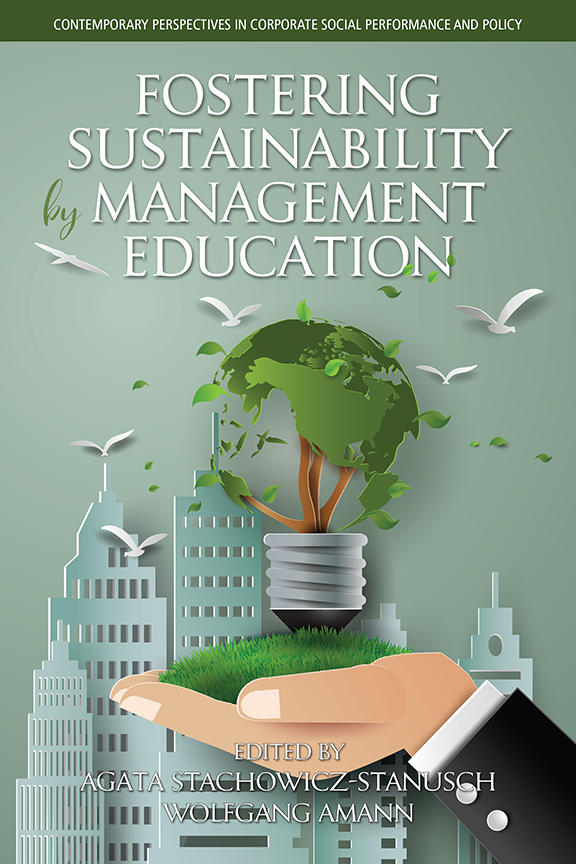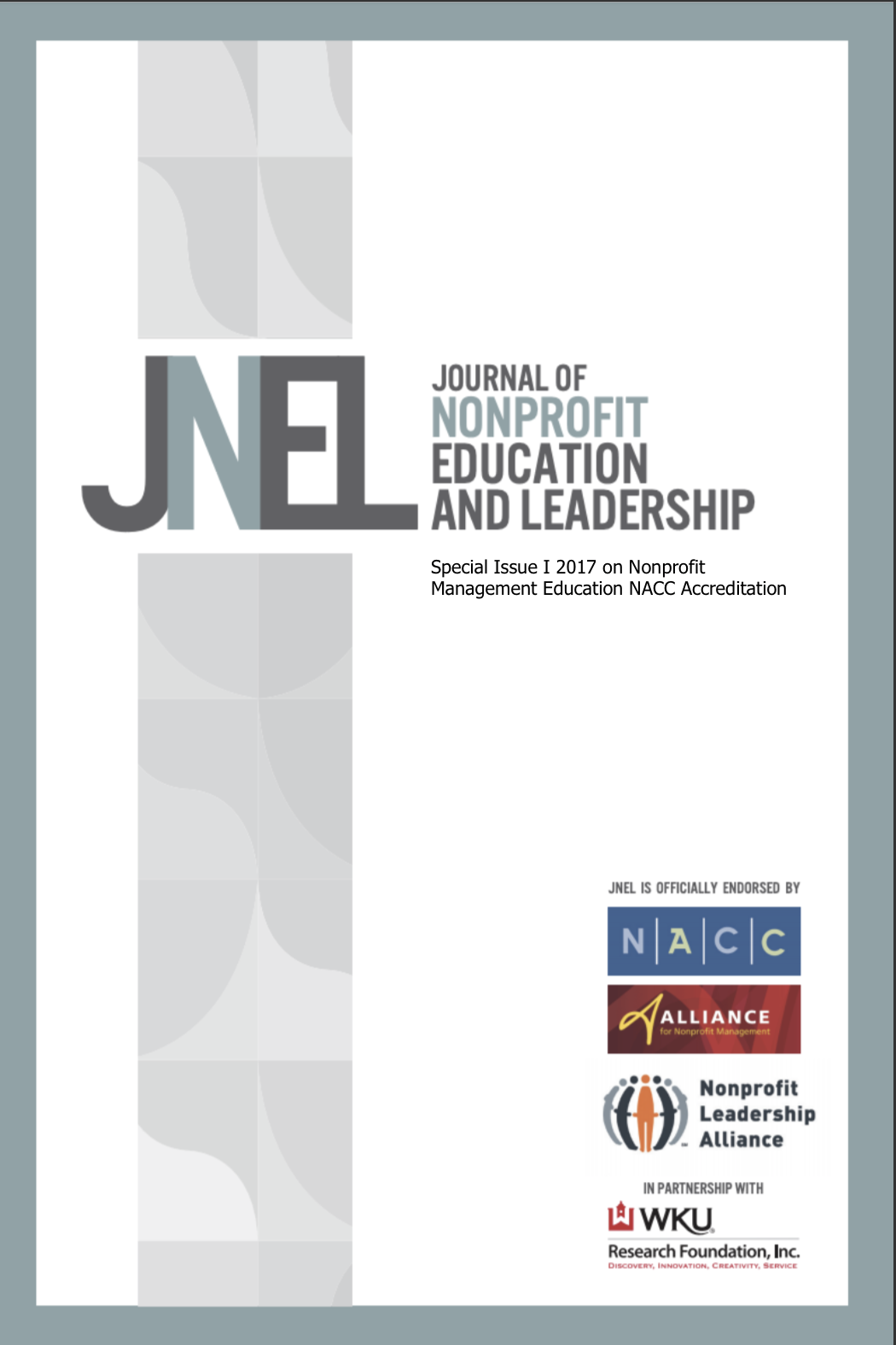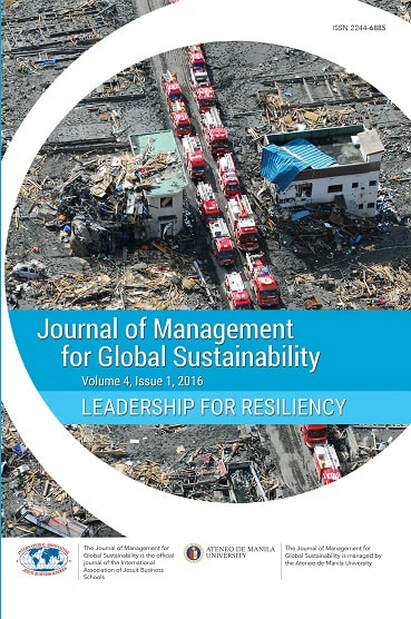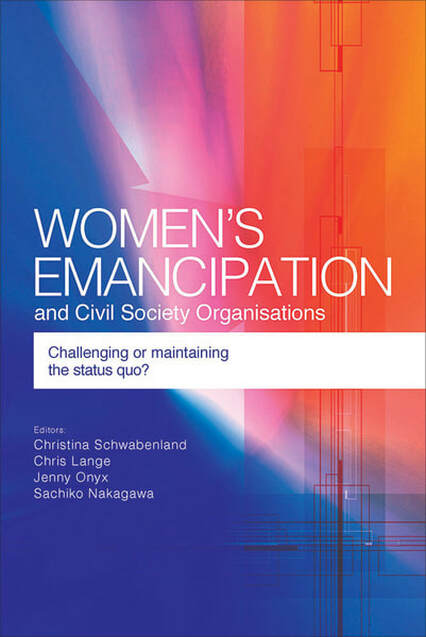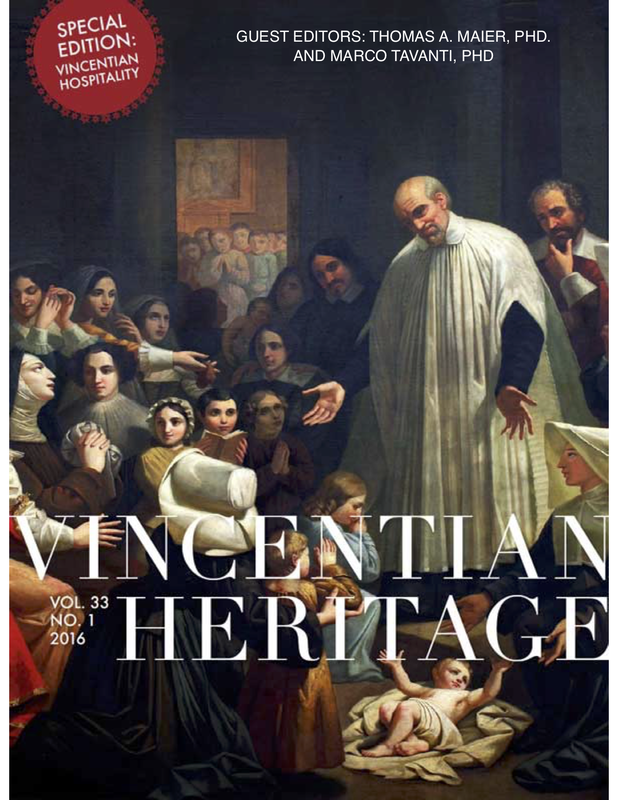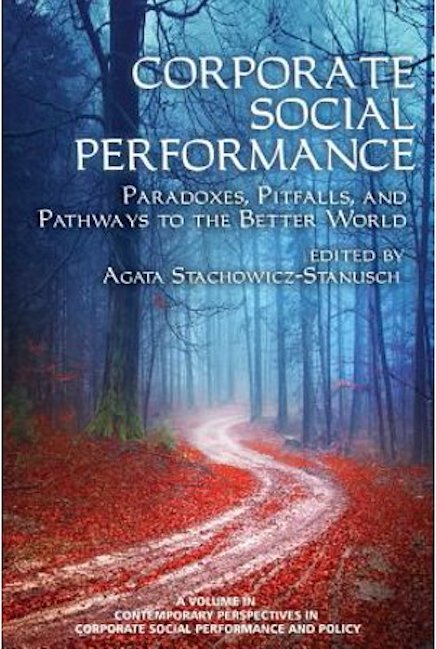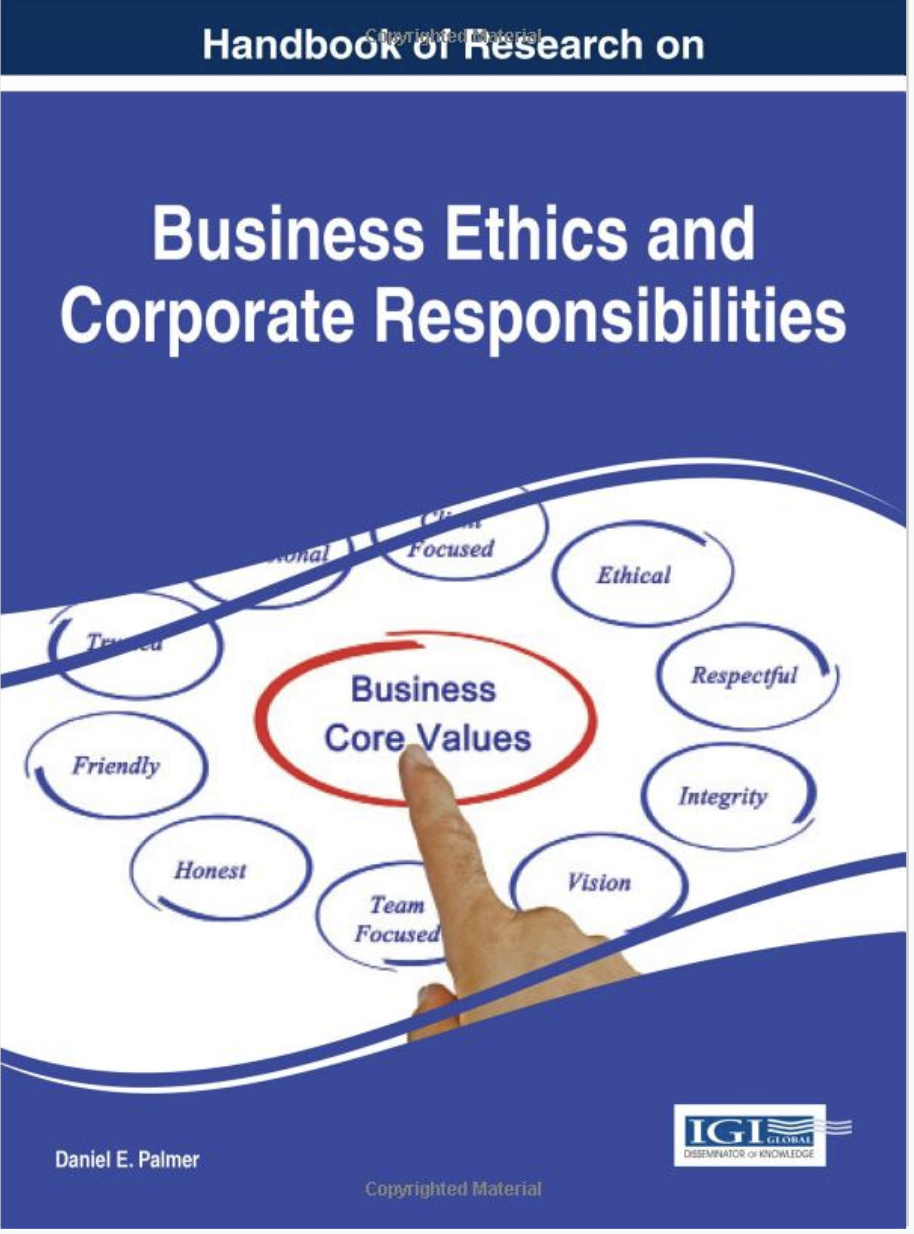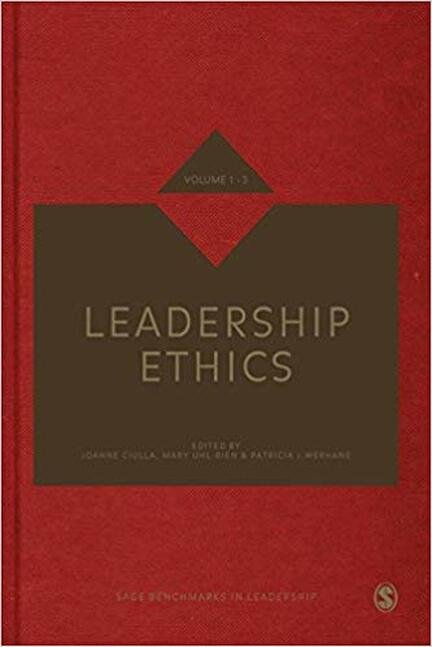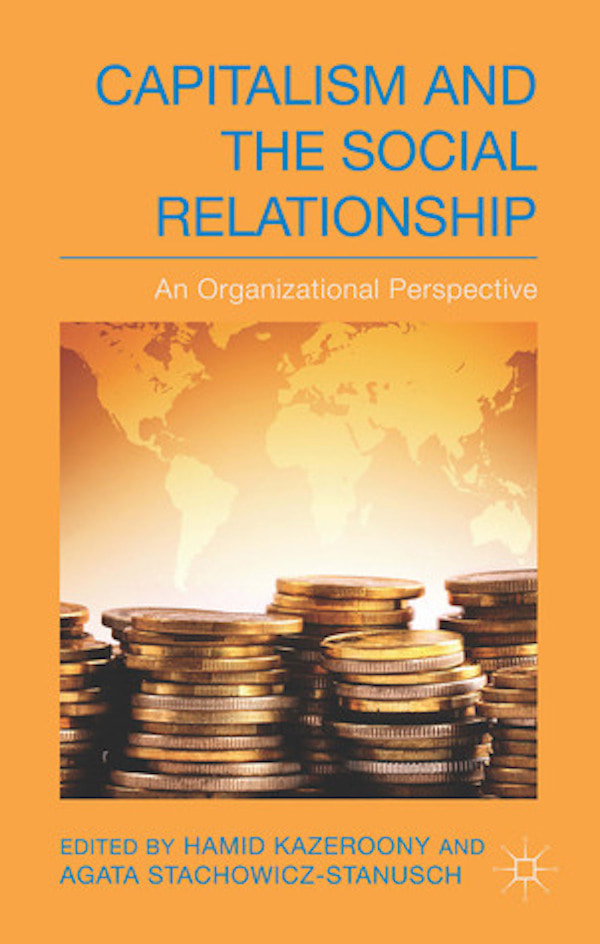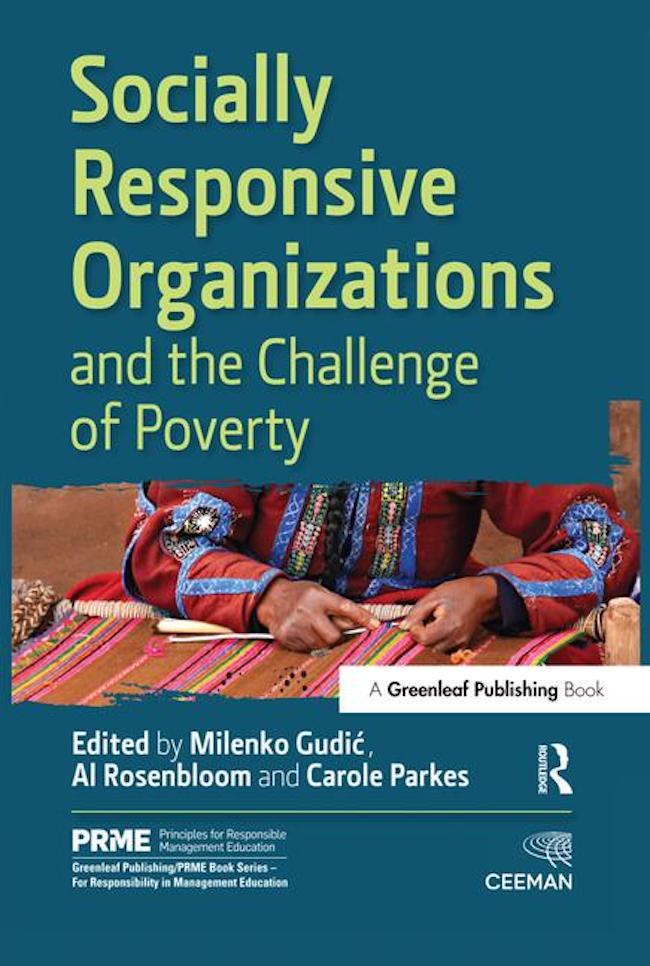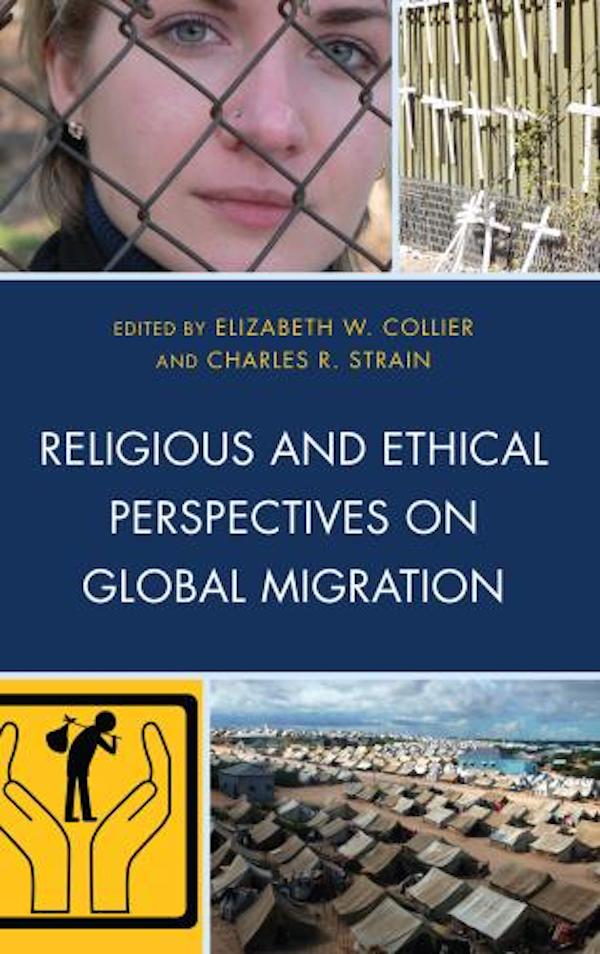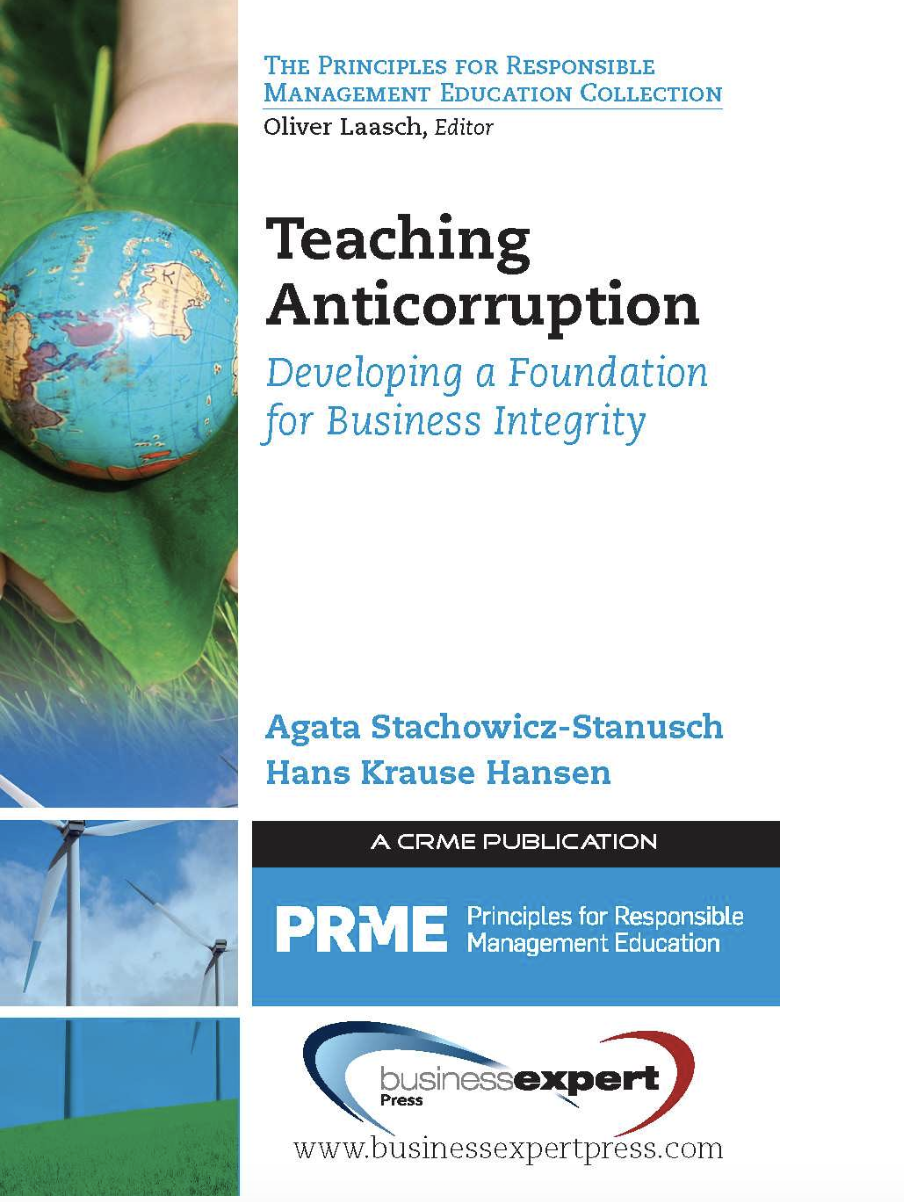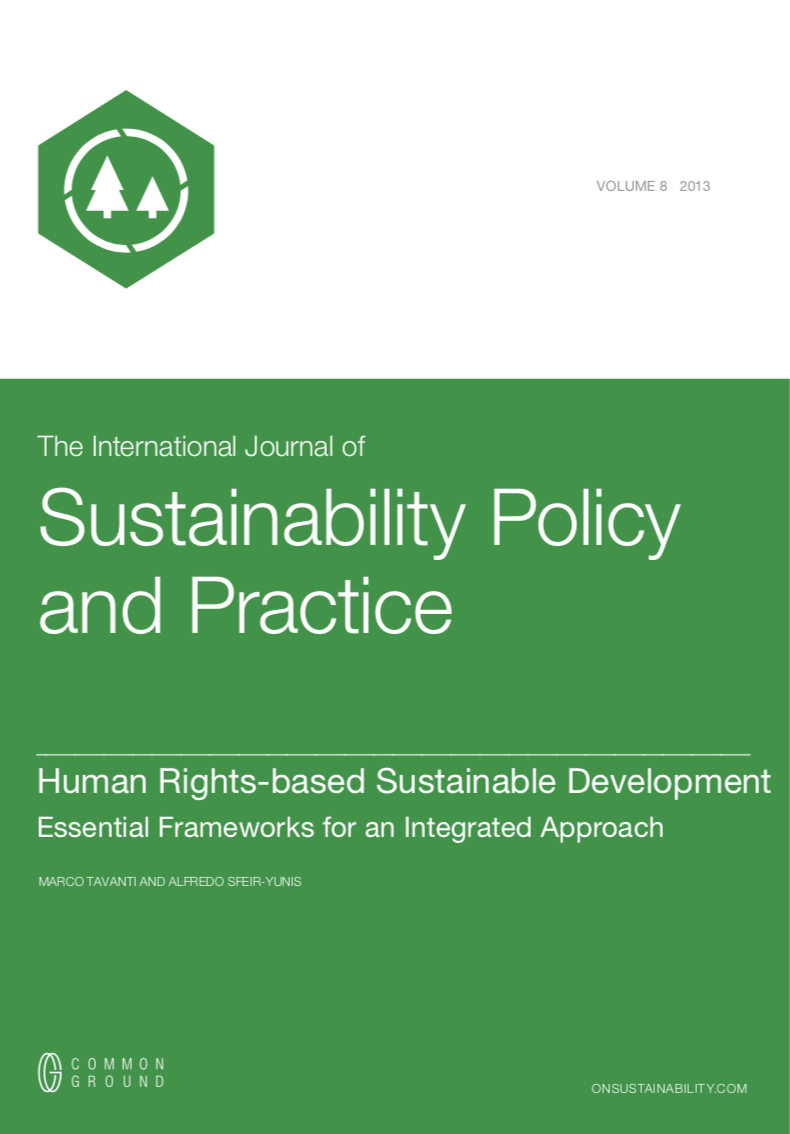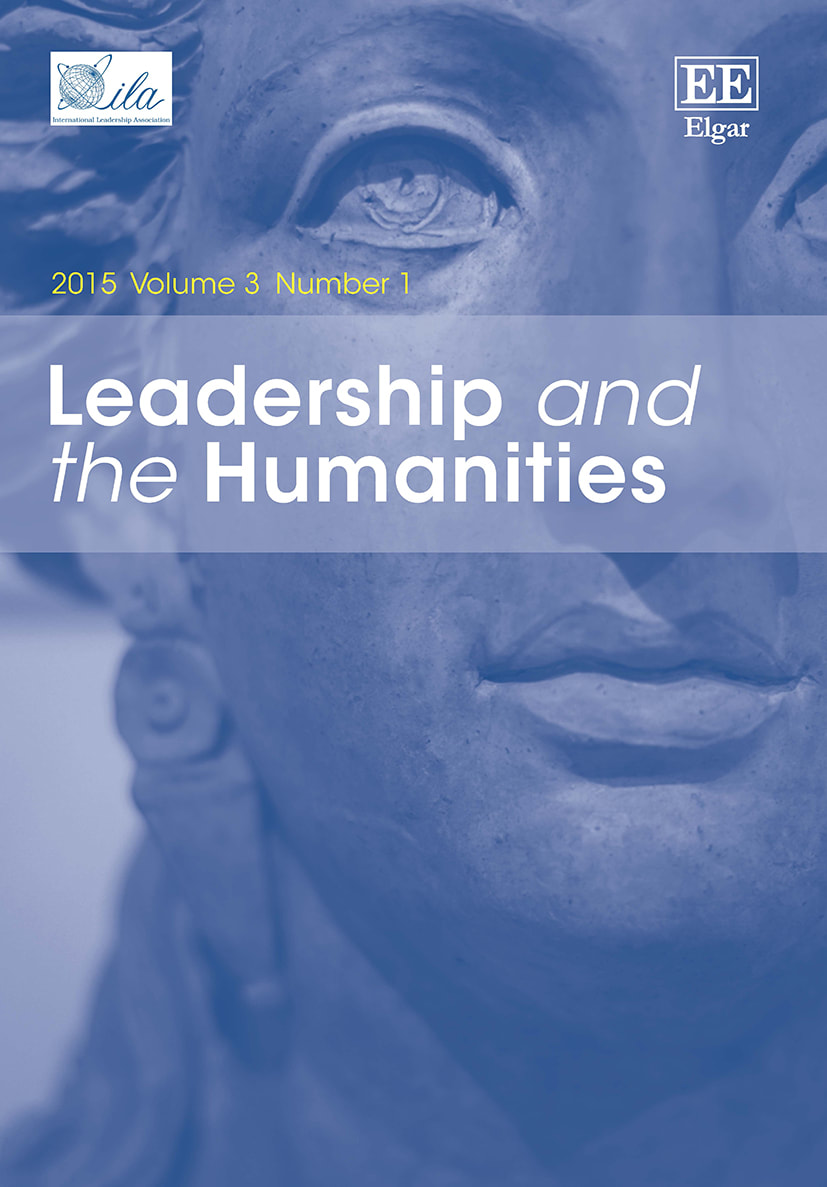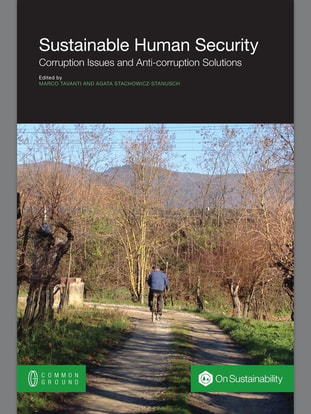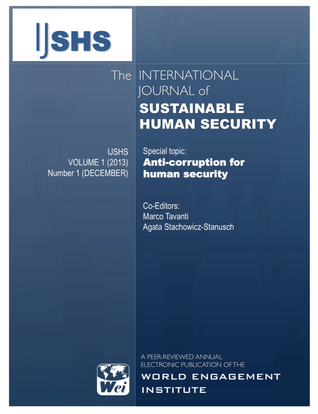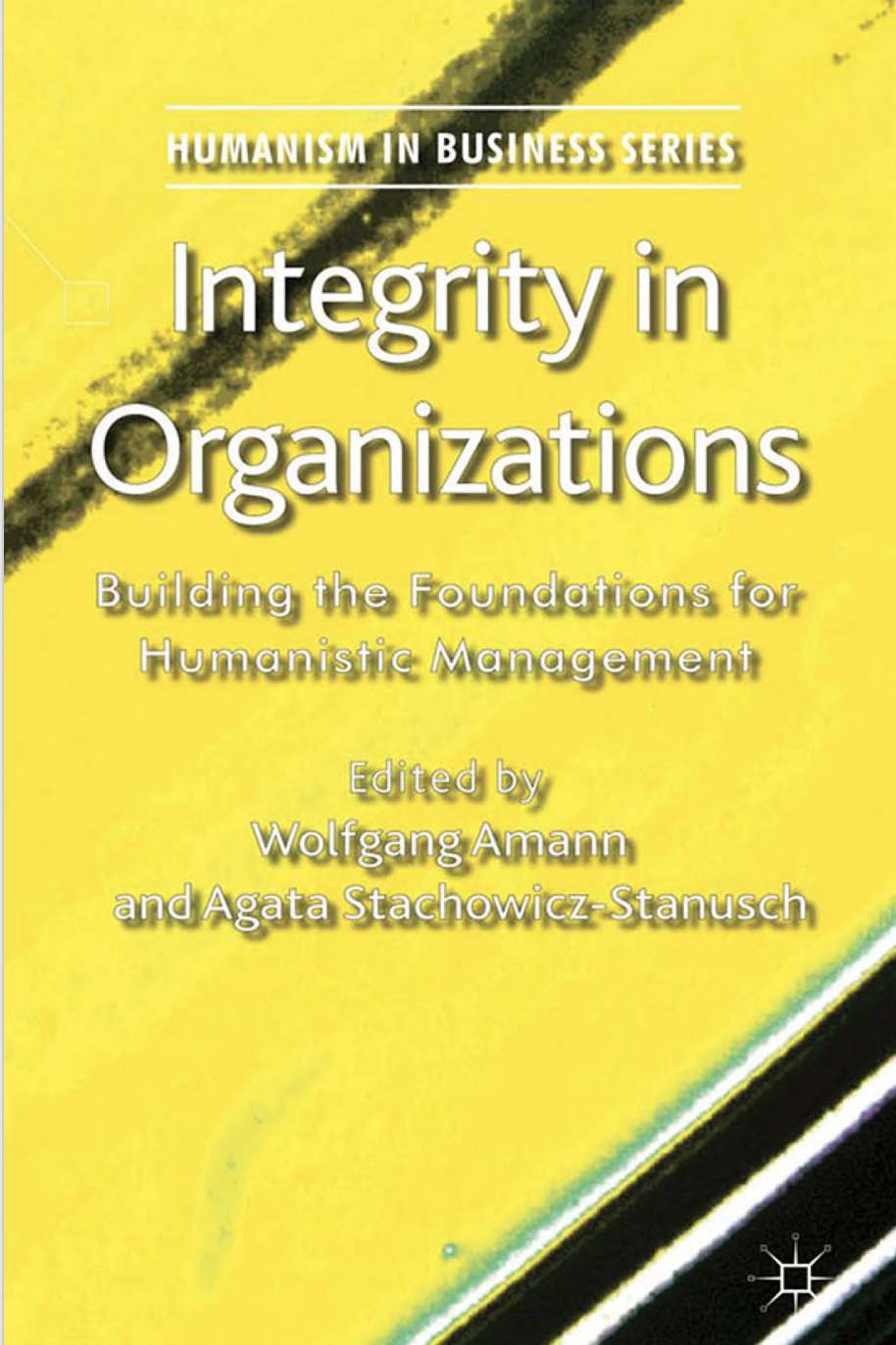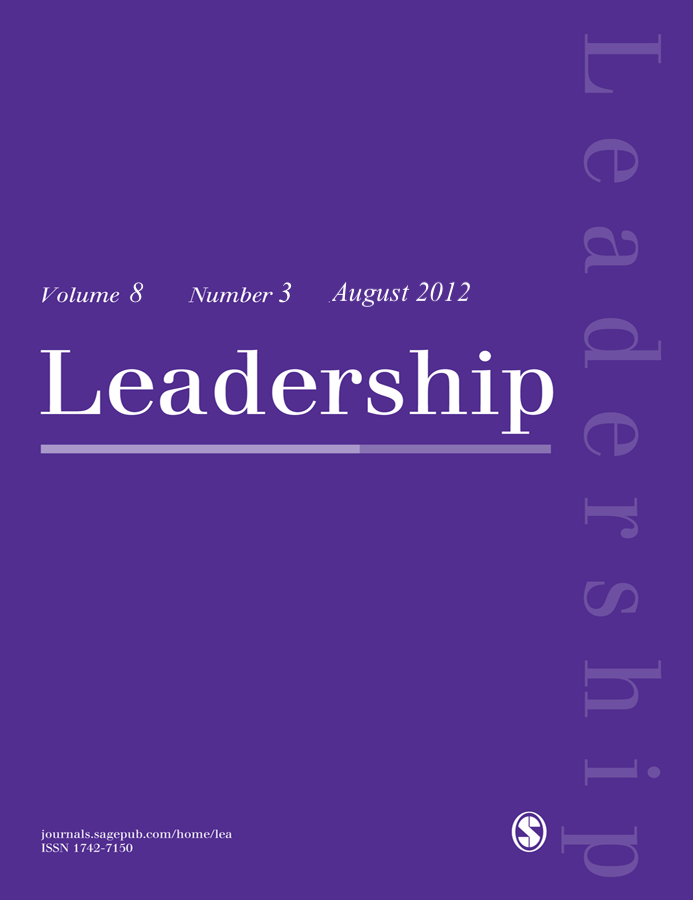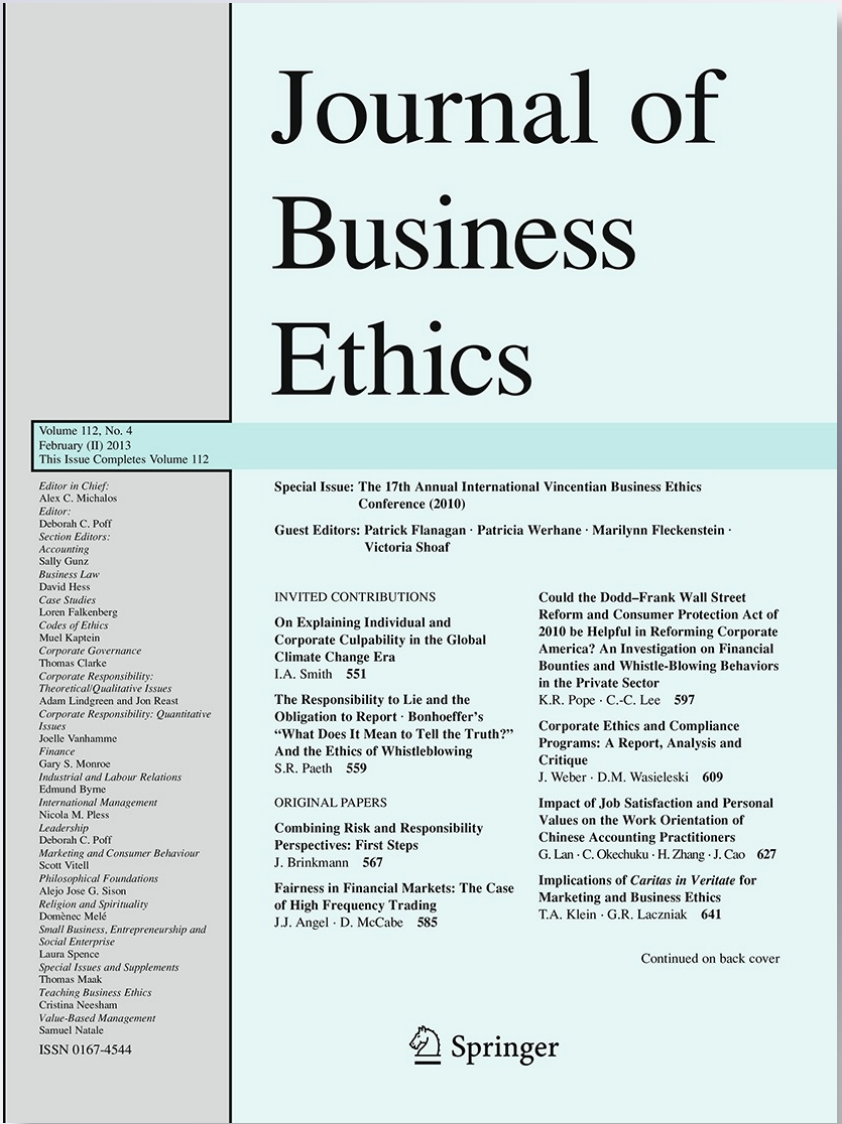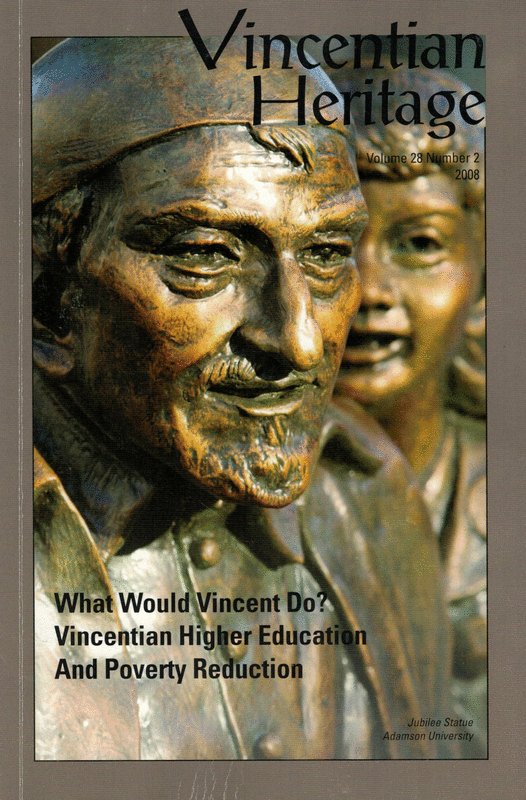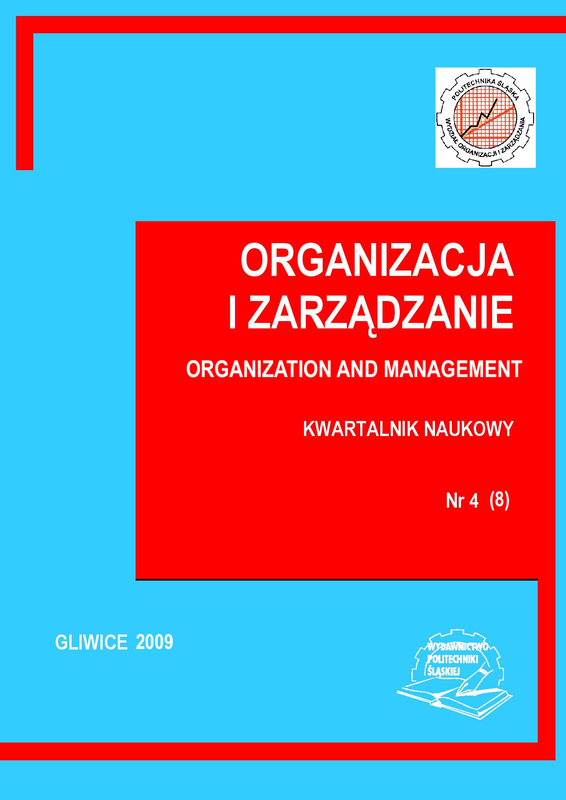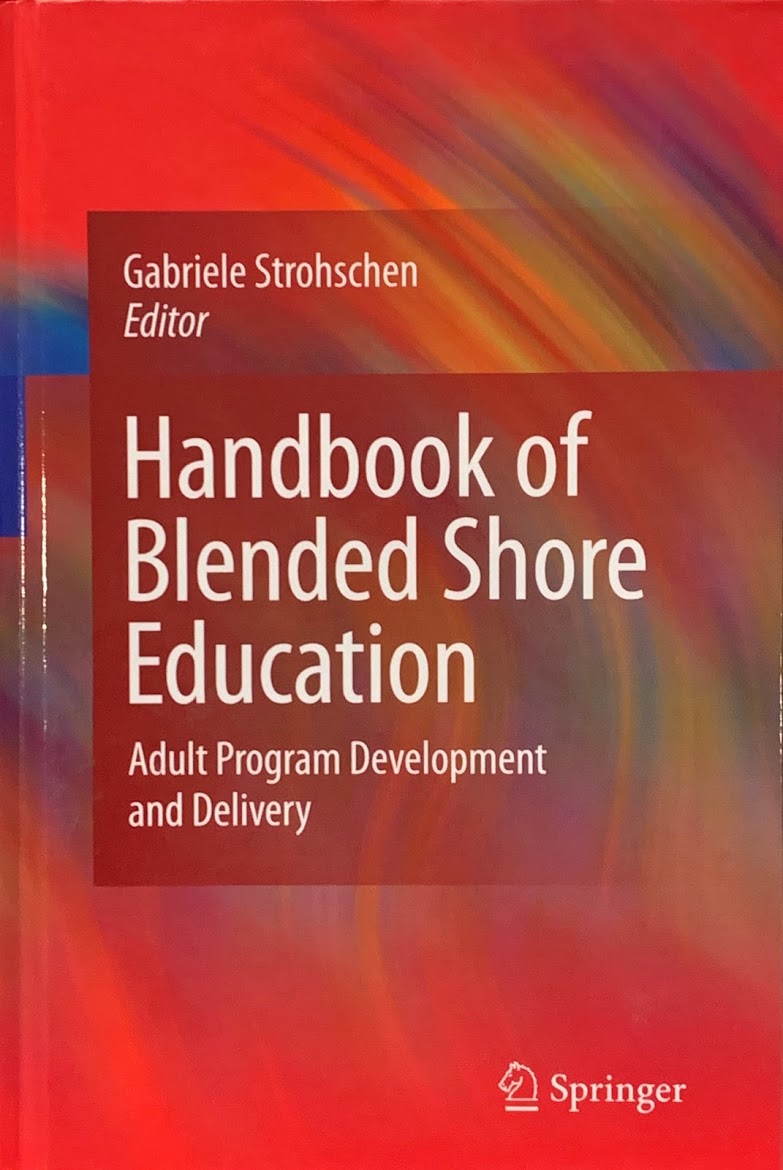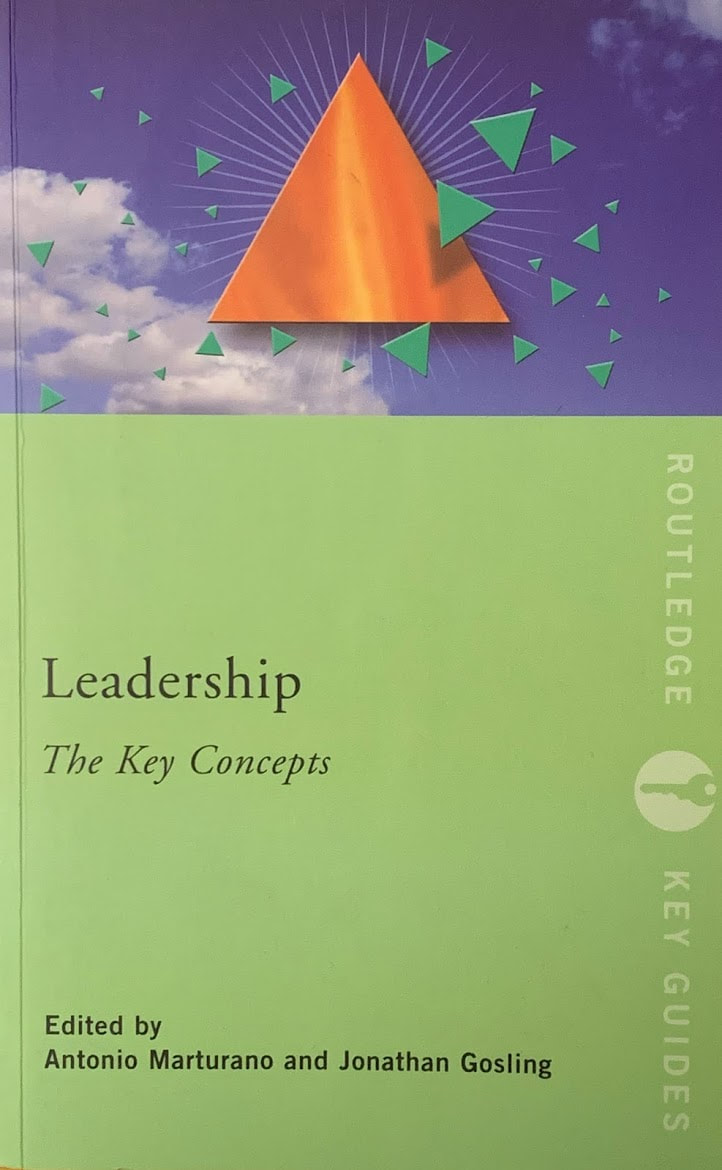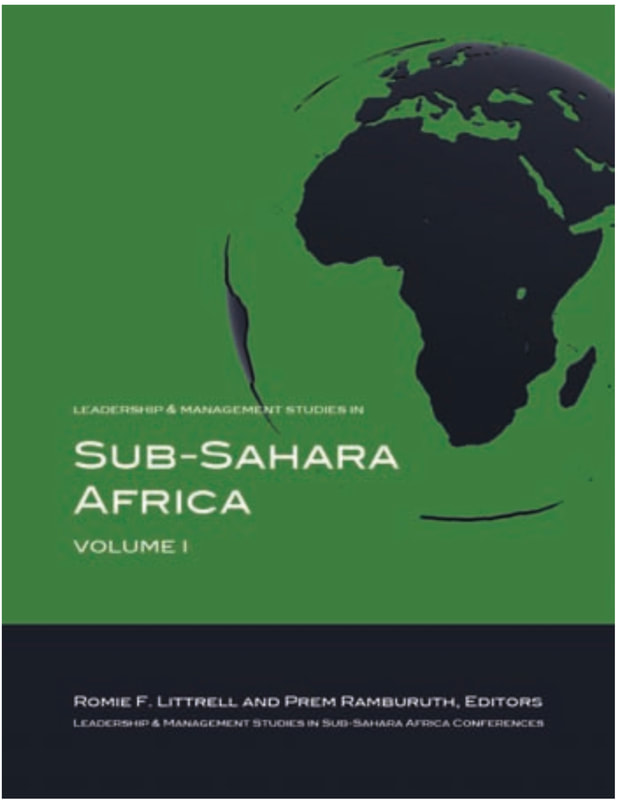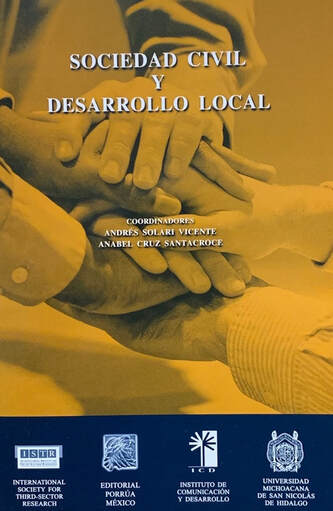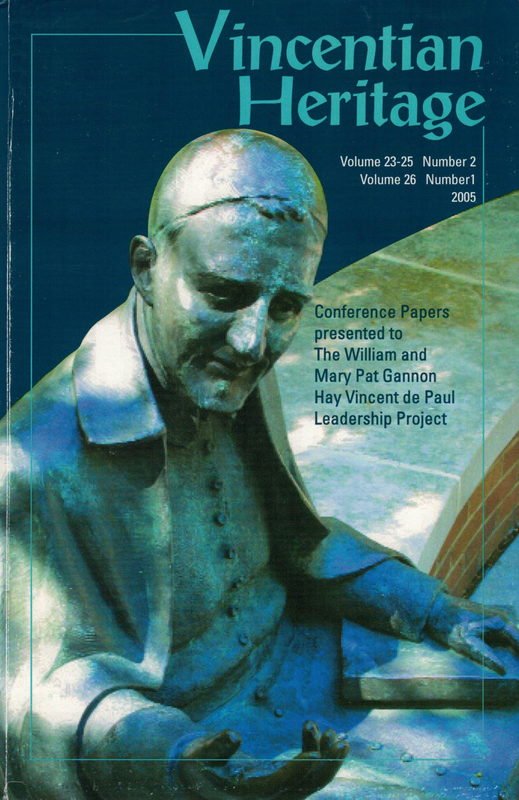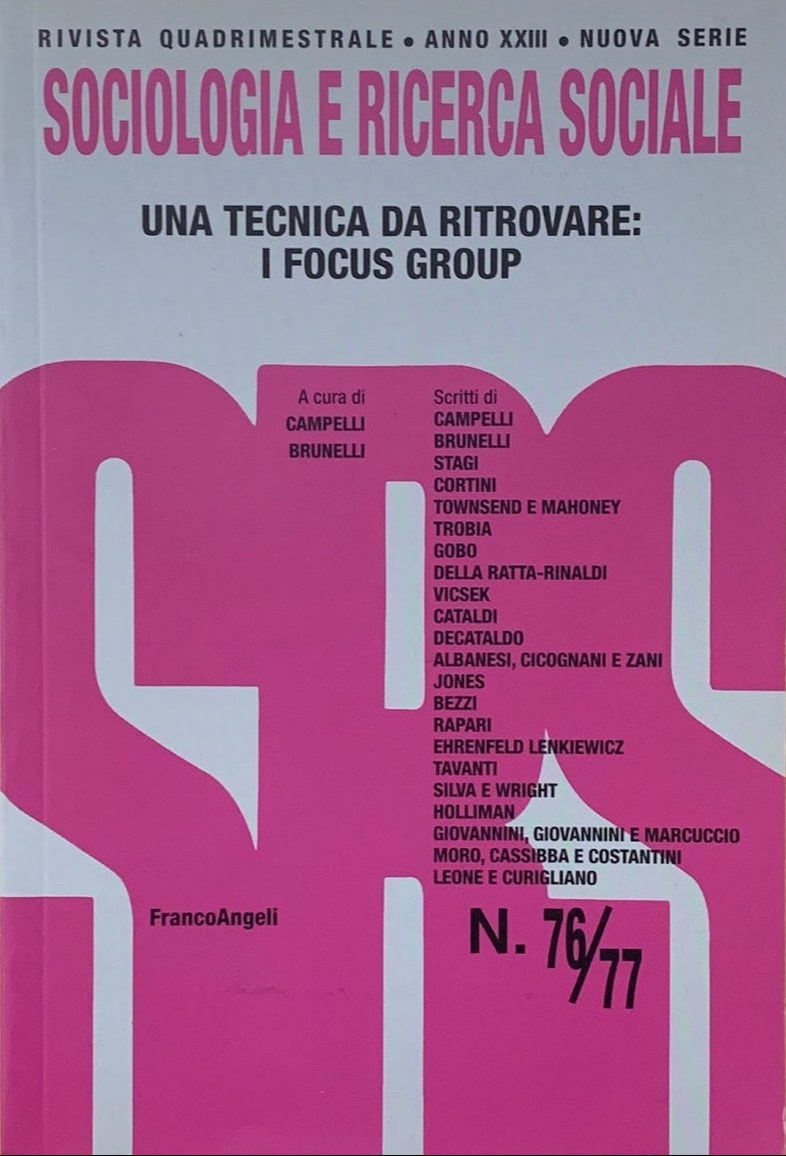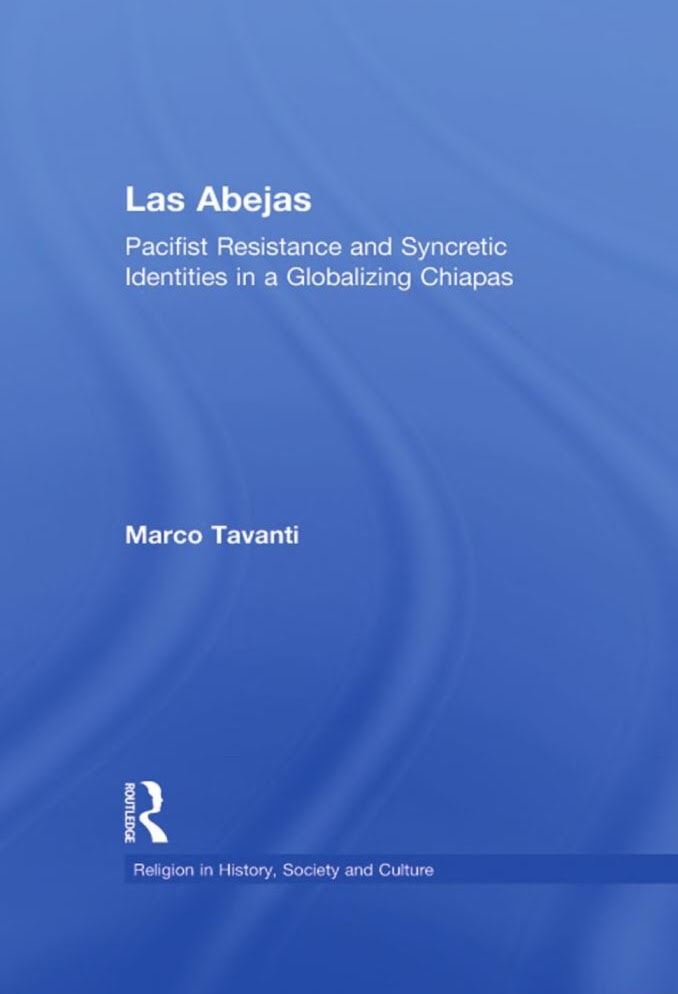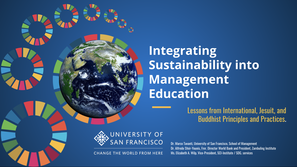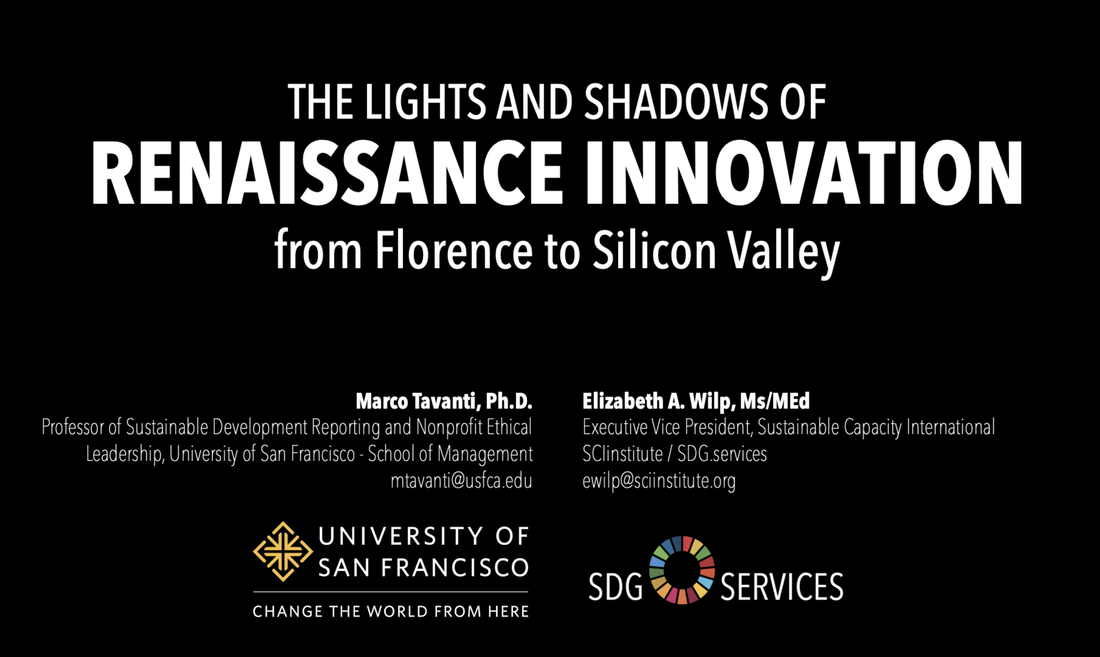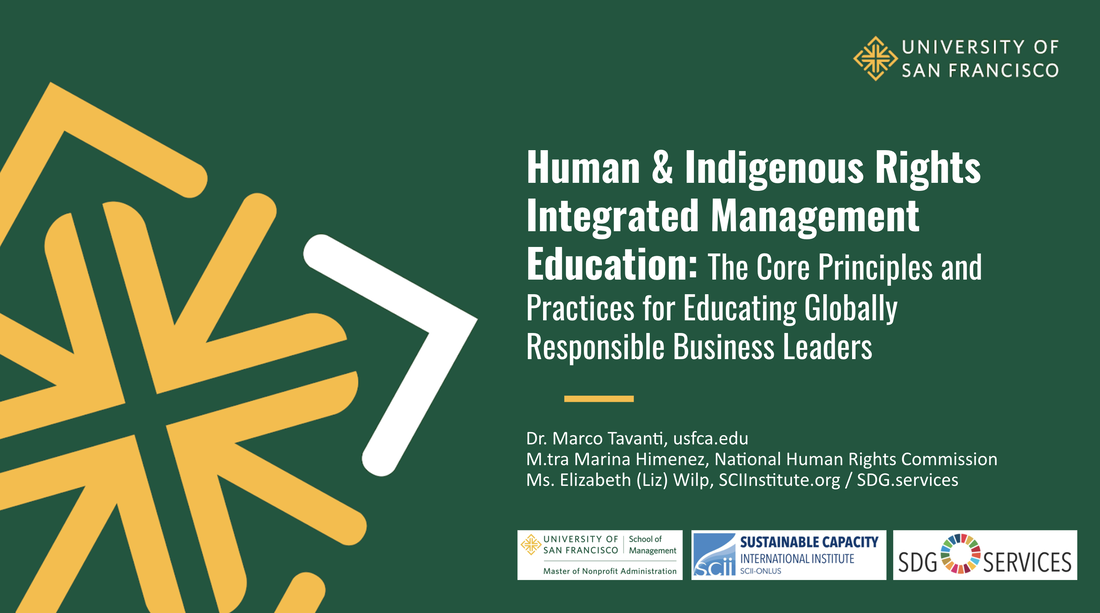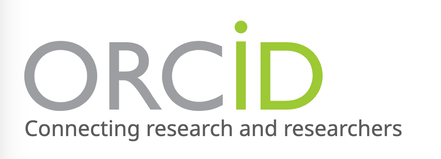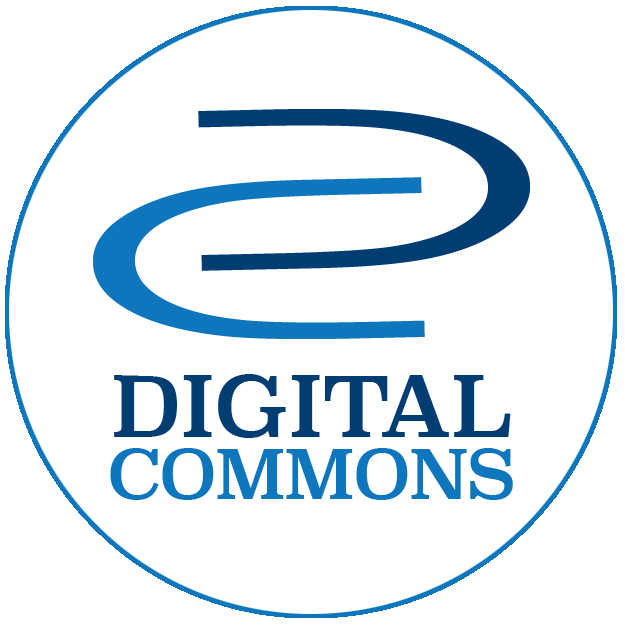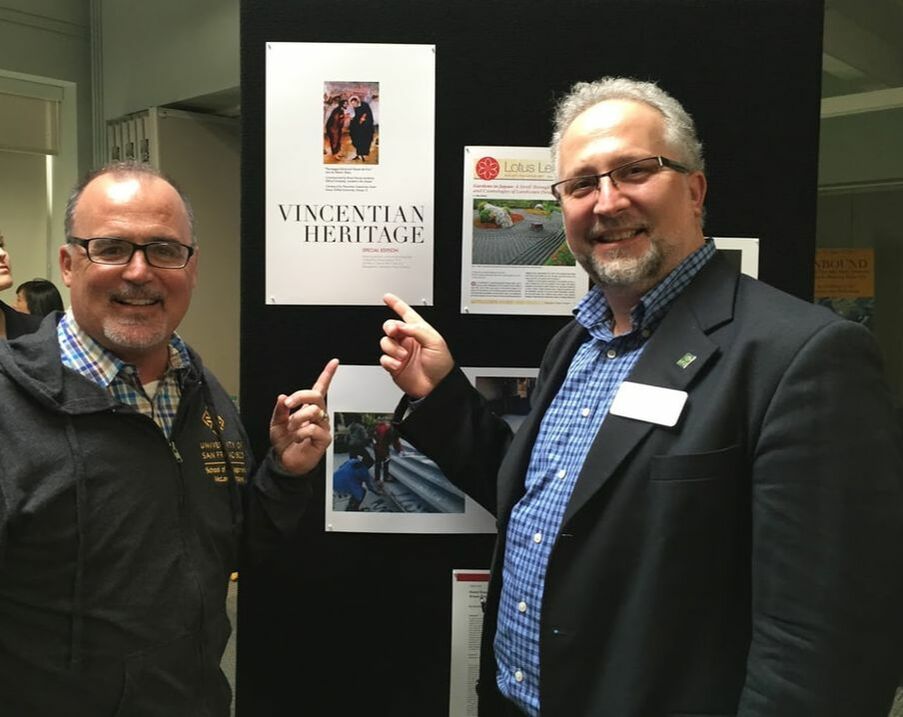Publications for Systemic Change
Dr. Tavanti's publications provide some analyses on integrated models for systemic solutions to global problems. His contributions explore how society, business, academia and other systems relate to social and global problems. He employs interdisciplinary, collaborative and participatory models to make academia relevant to the community. He also explore how businesses and civil society organizations can become more globally responsible, socially conscious, sustainability competent, Although academia often simply rewards personal accomplishments, Dr. Tavanti believes in the academic scholarship production as a service to society and a tool for capacity development and systemic change.
Highlighted Publications
The following is a sample of Dr. Tavanti's publications in the area of sustainable management education and responsible global leadership. These are author's copies. You can find the links to the these and other publications in the academic repository collections below.
Sustainability Leadership: Theories, Paradigms, and Practices for Emerging Value-Leaders.ABSTRACT: Sustainability Leadership presents an essential blueprint for businesses aligning economic success with environmental and social responsibility. This insightful book bridges theoretical concepts with practical applications, emphasizing the need for a holistic approach to global social responsibility, eco-environmental circularity, and prosperity and well-being. It delves into the heart of sustainable leadership, advocating for a balance of ethical practices, environmental consciousness, and social justice. Real-world examples illustrate the urgency for leaders to adopt a systemic thinking mindset, driving transformative change toward a sustainable, equitable future. This book is a call to action for leaders who forge a path where profit, people, and the planet coexist harmoniously.
Citation: Tavanti, M. (2024). Sustainability Leadership: Theories, Paradigms, and Practices for Emerging Value-Leaders. Planet Healing Press. LINK: With sample at Amazon.com |
Developing Sustainability in Organizations: A Values-Based ApproachABSTRACT: A comprehensive academic review for graduate students or professionals in business (MBAs), public administration (MPAs) or nonprofit-nongovernmental (MNAs). Includes four parts for Sustainability Leadership, Sustainability Management, Sustainability Innovation and Sustainability Impact. Provides a comprehensive and compelling review of main leadership aspects of sustainability. Introduces the notion of sustainability impact in relation to mindsets and systems thinking. Presents an integrated model combining leadership theory, management practice, and innovative solutions.
FROM THE PUBLISHER: The different sections examine sustainability leadership (focusing on of ethics, values, and purpose), sustainability management (focusing on organizational effectiveness and stakeholders’ wellbeing), sustainability innovation (focusing on social and environmental entrepreneurship), and sustainability impact (focusing on resilience, interconnectedness, consciousness, systemic thinking, and cosmic empathy for the common good and common future). CITATION: Tavanti, M. (2023). Developing Sustainability in Organizations: A Values-Based Approach. Springer Nature: Sustainable Development Goals Series SDG Series. Palgrave Macmillan. PURCHASE: Springer or Amazon.com LINK: https://link.springer.com/book/10.1007/978-3-031-36907-0#toc |
Sustainability Ethics: Common Good Values for a Better WorldAbstract: Sustainability Ethics is a comprehensive exploration of the ethical dimensions of sustainability. The book delves into the complex relationships between ethics and sustainable development, examining the role of ethics in promoting a better world for all. The lens of sustainability ethics considers the interdependence of environmental, social, and economic factors. This provides a holistic understanding of the subject matter.
Cite: Tavanti, M. (2023). Sustainability Ethics: Common Good Values for a Better World. Ethics International Press. Purchase: Ethics International Press or Amazon.com Acquista (Versione Italiana Adattata): Etica della Sostenibilità: Valori del Bene Comune per un Mondo Migliore. Planet Healing Press, 2023. Amazon.it |
Surviving the Anthropocene: A Guide to Building Resilience and ThrivingABSTRACT: This guide distils complex subjects into actionable insights, offering a lifeline to not only survive but thrive in these challenging times. Structured in five introductory chapters, this book delves into the multifaceted resilience needed in the Anthropocene era – environmental, societal, economic, technological, and psychological. Each chapter begins by outlining the 10 most pressing challenges within the respective domain and concludes with the 10 most impactful solutions. This structure is aimed at fostering a thorough understanding and a pragmatic approach to tackling these challenges.
CITATION: Tavanti, M. Wilp, L. Tavanti, J. (2023). Surviving the Anthropocene: A Guide to Building Resilience and Thriving. Planet Healing Press. Purchase (English Version): Amazon.com Acquista (Versione Italiana): Sopravvivere all’Antropocene: Una Guida per Costruire Resilienza e Prosperare: Amazon.it |
The Value of Sewa: Selfless Service in Education for Sustainable CitizenshipABSTRACT: This chapter explores the values of "Sewa" — the Indian cultural concept of selfless service — and its integration into education for the development of sustainable citizenship. By integrating social and emotional learning, service learning, and global citizenship education with a focus on sustainability and Sewa values, we provide the critical third pillar of experiential learning, which is currently missing from education, and is essential- for self and global well-being.
CITATION: Tavanti, M., et al. (2023). “The Values of Sewa: Selfless Service in Education for Sustainable Citizenship.” Chapter 1 Communique of Values 20 Engagement Group - Education Task-Force. 1 December 2022 to 30 November 2023. Available at https://www.values20.org/wp-content/uploads/2023/07/V20-Communique%CC%81.pdf General Information at https://www.values20.org/ |
The Common Good Value of Collective WellbeingABSTRACT: The common good is a value and core principle in societal relations explored since the time of Aristotle and emphasized again in our current global challenges. It represents a core element in promoting societal values-based solutions for global solidarity, governance subsidiarity, and planetary sustainability. The policy considerations and recommendations of this chapter highlight how the common good values, principles, and paradigms can translate into social, environmental, economic, and global solutions for our interdependent existence, shared governance responsibilities, and common future with prosperity.
CITATION: Tavanti, M. (2022). The Common Value of Collective Wellbeing. In Values at the Center - Values 20 (V20) 2022 Communique for the Group of 20 (G20). Society Task Force. Indonesia, October 2022 (19-23). https://www.values20.org/wp-content/uploads/2022/11/V20-2022-Communique.pdf |
Sustainability Initiatives for Management Education: A Roadmap for Institutional Integration.ABSTRACT: What are the best ways to integrate sustainability concepts into higher education institutions and management education? Sustainability, global responsibility, and social innovations are increasingly accepted worldwide as part of a common agenda and international priority. Yet, higher education institutions and management programs are slow to institute these standards and value-based perspectives to help students change the world for our common and better future. This study reviews key international initiatives, resources, frameworks, and paradigms that can help speed up integration of sustainability in higher education institutions. It also provides suggestions to better integrate Ignatian pedagogy and Buddhist perspectives into management education. Based on these analyses, the authors present practical recommendations to integrate sustainability more effectively into management education and to help develop conscious sustainability leaders for the 21st century.
CITATION: Tavanti, M. Sfeir-Younis, A. & Wilp, E. (2022). Sustainability Initiatives for Management Education: A Roadmap for Institutional Integration. Journal of Management for Global Sustainability (JMGS). Volume 10, Issue 1, 87-118. LINK: Journal Link: https://ajol.ateneo.edu/jmgs/issues/555 |
Beyond 501c3s: Third Sector/Social Economy Classifications for Nonprofit Management EducationABSTRACT: Until recently, nonprofit and third sector classifications have been an under-explored subject area in nonprofit management education. This research area has significantly evolved in the last few years merging American with European and other international perspectives. This article examines the organizational characteristics identifying nonprofit-social with nonprofit institutions (NPIs) and extended by third sector / social economy (TSE) institutions. Professor Lester Salamon substantially advanced the classifications of hybrid organizations which led to the 2018 Handbook on Nonprofit Satellite Accounts and the Third Sector Impact Project. This work represents the first steps in aligning American perspectives of charity and nonprofit institutions with European social enterprise and social economy perspectives regarding the third sector and social economy. The organizational characteristics and principles for nonprofit/third sector classifications are compared in relation to their effects on social economic solutions and nonprofit management education.
CITATION: Tavanti, M. (2022). Beyond 501c3s: Third Sector/Social Economy Classifications for Nonprofit Management Education. Journal of Nonprofit Education and Leadership, Online First. 12(2): 69–92. https://doi.org/10.18666/JNEL-2022-11145 |
Empowering Education for Sustainable, Global and Ethical Values that achieve the G20 Priorities for People, Planet and ProsperityOVERVIEW: Selected Policy Paper for the Values20 (2021), a global community of values experts and practitioners that seeks to actively engage with the Group of Twenty (G20). From the launching of V20 with the 'Value of Values' in 2020 to 'Values in Action' in 2021, Dr. Marco Tavanti has provided co-authorship and editing leadership for the Sharing Task Force along numerous international experts, political representatives and collaborators. Here is a list and direct access the co-authored publications:
Tavanti, M. & Eneroth, T. (2021). Sharing Values for Human-Centric Policy Solutions. Values20 Sharing Task Force (Introduction). v20_-_sharing_-_tf_introduction.pdf Hawkes, N. & Tavanti, M. (2021). Empowering Education for Sustainable, Global and Ethical Values that achieve the G20 Priorities for People, Planet and Prosperity. Values20 Sharing Task Force (Chapter 1). v20_-_sharing_-_empowering_education.pdf Sfeir-Younis, A. & Tavanti, M. (2021). Preventing a Planetary Collapse: Values-Based Governance Now! Values20 Sharing Task Force (Chapter 2). v20_-_sharing_-_values-based_governance.pdf Ovchinnikov, F., Tavanti, M., Villoch, P., Vekovishcheva, T., Alariefy, N., Constantinovichi, L., Manga, Reimagining Policy To Enable Cultural And Institutional Transformation. Values20 Solidarity Task Force (Chapter 2). v20_-_solidarity_-_reimagining_policy.pdf See the complete collection of policy papers at values20.org/task-forces |
A Common Good Mindset: An Integrated Model for Sustainability and Leadership Management EducationABSTRACT: This study reviews the concept of common good in relation to other dimensions of sustainability and its implications for sustainability mindsets. The common good, which dates to Aristotle, is central to sustainability and well-being in society because it promotes political justice, public accountability, and civic mindedness to help achieve prosperity and collective happiness (eudaimonia). Common good and public good dimensions of sustainability are examined considering Aristotle’s paradigms enhanced by the contributions of Jacques Maritain, Elinor Ostrom and Pope Francis reflecting the Jesuit and Catholic teaching traditions. These thinkers exemplify some of the essential elements in the common good mindset identified here as core dimensions for developing leadership mindsets for our collective global responsibility and our common sustainable future. Author's copy of the chapter.
CITATION: Tavanti, Marco. & Wilp, A. Elizabeth. (2021). A Common Good Mindset: An Integrated Model for Sustainability and Leadership Management Education. In Rimanoczy, I. & Ritz, A. (eds.), Sustainability Mindset and Transformative Leadership: A Multidisciplinary Perspective (pp. 241-266). Palgrave Macmillan. |
The Dark Side of Nonprofit Leadership: Cases, Causes And ConsequencesABSTRACT: This chapter reviews ethical challenges confronting nonprofit administration in relation to organizational managerial practices and leadership behaviors. Through a theoretical model of nonprofit specific toxic leadership, it reviews the dynamics of destructive leaders, susceptible followers, and conducive environments in cases of unethical and corrupt nonprofit organizational behaviors. It provides a case for prioritizing oversight responsibilities of the Board of Directors, board supervision, promoting ethical culture in organizational leadership, and implementing policies for addressing destructive and corrupt nonprofit leaders. It reflects on how nonprofit toxic leadership primarily erodes public trust in the nonprofit sector and concludes with practical recommendations for re-centering positive behaviors congruent with the nonprofit’s social and public good mission. Authors' copy of the Chapter.
CITATION: Tavanti, M. & Tait, A. (2021). The Dark Side of Nonprofit Leadership: Cases, Causes And Consequences. In Camgoz, S. M. & Ekmekci, O. T. (Eds.). Destructive Leadership and Management Hypocrisy: Advances in Theory and Practice. (pp. 255-279). Emerald Publishing Limited. |
Conscious Sustainability Leadership: A New Paradigm for Next Generation LeadersABSTRACT: This is a book for new leaders and people who care for the world. It is an invitation to go deeper and wider into critical reflections on leadership in its management biases and old paradigms. It is an innovative approach for sustainability in its development values and connections with nature. It is a bold proposition to embrace sustainability leadership with consciousness paradigm that aims to answer deeper ethical, spiritual and purposeful questions. The book offers personal, organizational and systemic overviews of key concepts in relation to sustainability practices, leadership assumptions and consciousness values. The proposed new paradigm called Conscious Sustainability Leadership (CSL) is presented as an evolution matured by the professional life experiences of the authors and the critical observations of the studies and practices of real world and organizational leadership, ecological and planetary interdependence, and through Buddhist and Christian spiritualities. The reader is taken on a critical journey of reflections through key themes described and developed for understanding, provoking and questioning our own assumptions. It is a book for a new generation of leaders who seek change for a better world and are not afraid to explore and develop new paradigms. Preview Chapter 7-8 on Sustainable Development Paradigms. Preview Chapter 9 and Chapter 16 on Ethics and Leadership.
CITATION: Sfeir-Younis, A. & Tavanti, M. (2020). Conscious Sustainability Leadership: A New Paradigm for Next Generation Leaders. Planet Healing Press. |
Humanistic Renaissance for Good: Leadership Lessons from Florence to Silicon ValleyABSTRACT: Humanistic Renaissance for Good offers an analytical and critical review of the leadership values and eco-system dynamics of humanism during the Florentine Renaissance in the 14th and 17th century. It compares the innovative characteristics as well as shortcomings in relation to today’s Silicon Valley examples of innovative companies and polymath leaders. Making an argument for humanistic values and multi-disciplinary studies, the study related innovation to pandemics and makes a case for educating future leaders with universal and innovation mindsets to make our communities and the world a better place.
Buy the book from the IAP website: https://www.infoagepub.com/products/Humanistic-Values CITATION: Tavanti & Wilp (2020). Humanistic Renaissance for Good: Leadership Lessons from Florence to Silicon Valley. In Stachowicz-Stanusch, A., Lewis, A. and Stanusch, N. (Eds). Humanistic Values from Academic Community Perspective (pp. 221-240). Information Age Publishing (IAP). |
Nonprofits in the United StatesGlavin, R. & Tavanti, M. (2019). Nonprofits in the United States. In Hayman, D. R. & Brenner, L. (Eds.). Nonprofit Management 101: A Complete and Practical Guide for Leaders and Professionals 2nd Edition. (pp. 5-26). John Wiley & Sons, Inc. Download Sample of Ch. 1.
|
Social Economy Enterprises: The Third/Social Economy (TSE) Sector Classification for Advancing Shared Values for the Common GoodABSTRACT: This article provides a panoramic overview of the challenges and
advancements made regarding recent classifications of Third/Social Economy Sector both in Europe and internationally. The author examines the values and characteristics of social enterprise/hybrid organizations integrating the promotion of profit-business values along with community-social benefits. In reference to the existing literature and practices in the social enterprise arena, the new classifications provide an opportunity for scaling up the impact of social/benefit enterprises in order to advance the recognition of social economy values through appropriate investments and policies. These classifications improve our understanding of social innovation and sustainable social impact solutions relevant to the advancement of the social enterprise ecosystems in Mexico and Latin America. CITATION: Tavanti, M. (2019). Social Economy Enterprises: The Third/Social Economy (TSE) Sector Classification for Advancing Shared Values for the Common Good. Entretextos 11/33 – Economía Social y Solidaria (December 2019 - March 2020), 51-64. |
Anti-Corruption in Nonprofit Management Education: Promoting Ethical Capacity through Case Study AnalysesABSTRACT: Information Age Publishing, USA. Abstract: Nonprofit management education (NME) is an academic field of study which focusses on, among other things, the ethical and legal expectations for fund disbursement, report transparency, and cross-sector practices. Anti-corruption capacity development in NME must be embedded into the curriculum to increase student capacity to recognize and analyze ethical practices. There is also a need to integrate the curricula with specific learning outcomes to align managerial organizational practices with leadership values that reflect the social missions of nonprofit organizations. This study presents a model for the promotion of legal practices and ethical decision making in NME using the curricula guidelines of the Nonprofit Academic Centers Council (NACC) and the Principles of Responsible Management Education (PRME). The authors demonstrate how using a case study pedagogy will provide students the skills to recognize and address unethical behavior. Researching unethical and illegal nonprofit cases can be instrumental in the development of moral intelligence, preventing corruption, and promoting ethical leadership and moral management practices.
CITATION: Tavanti, M. & Wilp, E. A. (2019). Anti-Corruption in Nonprofit Management Education: Promoting Ethical Capacity through Case Study Analyses. In Stachowicz-Stanusch, A. & Amann, W. (Eds). Anti-Corruption in Management Research and Business School Classrooms. (pp 31-44). |
Experiential-By-Design: Integrating Experiential Learning Strategies into Nonprofit Management EducationABSTRACT: This paper provides a literature review of experiential learning in the context of nonprofit management education and its contribution to local/global community engagement. It presents three models for the strategic integration of experiential learning in teaching and learning, theory and practice, along local/global community immersions. Drawing upon the field’s literature and case studies, this paper offers pedagogical models and administrative recommendations to advance the integration of experiential education and community engagement to more effectively educate nonprofit managers and leaders in the 21st century.
CITATION: Tavanti, M. & Wilp, E. A. (2018). Experiential-By-Design: Integrating Experiential Learning Strategies into Nonprofit Management Education. Journal of Nonprofit Education and Leadership (JNEL), 8 (4), 375-402. |
Integrating Sustainability Mindset and Impact Competencies in Management Education: Directions, Models and StrategiesABSTRACT: This study offers a systemic overview on how to best design academic programs for educating globally engaged leaders and socially responsible managers. It provides a framework for structuring academic programs and educational initiatives for developing leaders and managers with a sustainability and global mindset integrated with socially innovative skills and socially impactful competencies. The first part of the study offers an overview of the sustainability leadership and global citizenship mindset necessary as a value foundation of the program(s). These include an integrated model to effectively engage in multiple stakeholders and sectors for the creation of shared economic, social, political and environmental values. The second part of the study identifies the groups and levels of competencies for promoting social innovation and globally impactful outcomes. The essential skills represent the capacity to formulate new enterprises and design needs-based feasible projects; the capacity to manage projects with their financial, human, legal aspects; and the capacity to develop appropriate evaluative and communicative reports. These competencies reflect the international priorities for a sustainable future and an integrated benefit for people, planet, prosperity, peace and partnerships. These sets of capacity and skills represent the essential elements for developing competent managers capable of providing sustainable solutions for social impact.
CITATION: Tavanti, M. & Davis, E. B. (2018). Integrating Sustainability Mindset and Impact Competencies in Management Education: Directions, Models and Strategies. In A. Stachowicz-Stanusch and W. Amann (Eds.), Management Education for Corporate Social Performance. (pp. 223-241). Charlotte, NC: Information Age Publishing (IAP), Contemporary Perspectives in Corporate Social Performance and Policy Book Series. |
International-by-Design: International Accreditation Perspectives for Nonprofit Management EducationABSTRACT: The classification process of American nonprofit sectors is diverse and complex. The classification process at the international level is further complicated by sector hybrid organizations responding to diverse national legal systems and diverse socio-political contexts. This paper addresses some of these complexities with nonprofit organizational cases from East Africa and Western Europe and nonprofit related educational programs. It offers new recommendations to incorporate this diversity into the definitions of accreditation criteria for nonprofit management education with the aim of preparing our students for the 21st Century.
CITATION: Tavanti, M. (2017). International-by-Design: International Accreditation Perspectives for Nonprofit Management Education. Journal of Nonprofit Education and Leadership (JNEL), 7 (Special Issue 1), 84-97. https://doi.org/10.18666/JNEL-2017-V7-SI1-8243 |
Management Education for Sustainable Development: Integrating Ecology and Community Values in Social Impact PracticumsABSTRACT: This study explores a management education model to help integrate sustainable development ideas into university curricula and programs. This pedagogical model emphasizes a community-based approach along with other proven methods for university-community collaborations and course-based social impact analysis. The Laudato Si encyclical’s notion of integral ecology in addition to the need for creating community-benefit academic programs inspired the establishment of a partnership between University of San Francisco’s Master of Nonprofit Management and the Foundation for Sustainability Development. The partnership experience expanded into development practicum courses and solidified into strategies for integrating experiential learning and organizational development through community-based analysis. The graduate level pedagogical models discussed here are relevant to other academic institutions and programs who would like to educate students with a community-centered approach.
CITATION: Tavanti M., Brennan, M., & Helgeson, S. (2016). Management Education for Sustainable Development: Integrating Ecology and Community Values in Social Impact Practicums. Journal of Management for Global Sustainability (JMGS), 4 (1): 75-99. Special Issue on Leadership and Resilience. DOI: http://dx.doi.org/10.13185/JM2016.040 |
Gender Democracy and Women Self-Empowerment: A Case of Somali Diaspora Civil SocietyABSTRACT: Women’s empowerment initiatives face challenges in transitional societies such as Somalia. However, concerted efforts and multi-faceted investments in this endeavor have potential to improve the status of women in this post-war context. This study explores the role Somali diaspora civil society organizations (SD-CSOs) engaged in gender democracy and women’s self-empowerment efforts play in the promotion of gender equality. Through an analysis of capacity development in the ‘meso’ level, the study outlines how SD-CSOs are best equipped to support the women’s empowerment process in Somalia through the application of strategies that are both culturally acceptable and internationally recognized.
CITATION: Tavanti, M., Abdi, C. & MacHarg, B. (2016). Gender Democracy and Women Self-Empowerment: A Case of Somali Diaspora Civil Society. In C. Lange, C. Schwabenland, J. Onyx, Jenny, Nakagawa, Sashiko (Eds.), Women's Emancipation and Civil Society Organisations: Challenging or maintaining the status quo? (pp. 209-233). Bristol, UK: Policy Press. DOI: http://dx.doi.org/10.1332/policypress/9781447324775.003.0010. |
Hospitality Ethos with Justice and Dignity: Catholic, Vincentian, and Jesuit Perspectives on Global MigrationCITATION: Tavanti, M. (2016). Hospitality Ethos with Justice and Dignity: Catholic, Vincentian, and Jesuit Perspectives on Global Migration, Vincentian Heritage Journal (33) 1, Article 6. Available at: http://via.library.depaul.edu/vhj/vol33/iss1/6
|
Global Sustainability Reporting Initiatives: Integrated Pathways for Economic, Environmental, Social, and Governance Organizational PerformanceABSTACT: This paper reviews the economic, environmental, social, and governance values of sustainability reporting. In the examination of the value integration and measurement standardization exemplified by the Global Reporting Initiative (GRI), correlated reporting and guidance frameworks, we discuss the opportunities and limits of complementary reporting. GRI is recognized as an authoritative sustainability-reporting framework helping organizations to increase transparency and accountability in non-financial reporting. Since its foundation in 1997 by a cooperative effort through the United Nations Environment Program (UNEP) and CERES, a non-profit organization advocating for sustainability leadership, GRI has grown exponentially by continuously refining their reporting guidelines and providing a shared platform for disclosure standards across time, sectors, and nations.
CITATION: Tavanti, M. (2015). Global Sustainability Reporting Initiatives: Integrated Pathways for Economic, Environmental, Social, and Governance Organizational Performance. In A. Stachowicz-Stanusch (Ed.) Corporate Social Performance: Paradoxes, Pitfalls and Pathways to The Better World (pp. 301-323). Charlotte, NC: Information Age Publishing (IAP). |
Globally Responsible Management Education: From Principled Challenges to Practical Opportunities.ABSTRACT: Responsible management education is a crucial step in shaping our common future. This chapter reviews how the Principles of Responsible Management Education (PRME) offers a platform for institutional commitment and leadership engagement toward business ethics and poverty alleviation. Specifically, this work critically analyzes the challenges and opportunities in adopting the educational principles for practical outcomes in the context of other trends in socially responsible global engagement. Through a review of the institutional trends in relation to PRME, the authors offer practical opportunities for cur- ricula development, academic engagement, and ethical education for the 21st Century.
CITATION: Tavanti, M., & Wilp, E. A. (2015). Globally Responsible Management Education: From Principled Challenges to Practical Opportunities. In Palmer, D. E. (Ed.), Handbook of Research on Business Ethics and Corporate Responsibilities (pp. 196-220). IGI Global. http://doi:10.4018/978-1-4666-7476-9.ch010 |
Managing Toxic Leaders: Dysfunctional Patterns in Organizational Leadership and How to Deal with ThemABSTRACT: This study reviews different typologies of toxic leaders in organizations—from bullies to narcissistic leaders. Unfortunately, toxic leaders are a painful but common reality in many organizations. Their destructive behaviors and dysfunctional personal characteristics often generate enduring poisonous effects on those they lead. They are identified by selfish outcomes in their decision–making and how they leave subordinates worse off than when they began. What distinguishes excellent from average managers is their ability to effectively manage dysfunctional leaders in the workplace. Even though some organizations may promote or simply tolerate toxic leaders for economic or political reasons, the long–term impact on the company’s mission and reputation is often underestimated. The author suggests some effective coping strategies to identify, address, and transform toxic leaders and workplaces.
CITATION: Tavanti, M. (2014). Managing Toxic Leaders. In J. Ciulla, M. Uhl-Biel, and P.J. Werhane (Eds.). Leadership Ethics. Vol. 2 (Part 1). Los Angeles, CA: SAGE. First published as: Tavanti, M. (2011). Managing Toxic Leaders: Dysfunctional Patterns in Organizational Leadership and How to Deal with Them. Human Resource Management, 6 (1), 127-136. |
Sustainable Development Capitalism: Changing paradigms and practices for a more viable, equitable, bearable and just economic future for allABSTRACT: This study critically reviews four paradigms associated with capitalism related to the value of freedom, development, inclusiveness and sustainability. It argues that there is a critical need to integrate access to capital with sustainable development through legal-institutional and entrepreneurship-organizational capacity. An integrated model called ‘sustainable development capitalism’ is introduced and critically analyzed through social, environmental, economic and systemic lenses.
CITATION: Tavanti, M. (2014). Sustainable Development Capitalism: Changing paradigms and practices for a more viable, equitable, bearable and just economic future for all. In Kazeroony, H. H. and Stachowicz-Stanusch, A. (Eds.), Capitalism and the Social Relationship: An Organizational Perspective (pp. 163-182). New York: Palgrave-Mac Millan. |
Fighting Poverty through Practical, Integrated and Multidisciplinary Education: The Case of Master Programs in Development PracticeABSTRACT: This chapter describes the Master in Development Practice (MDP) which is as an innovative education program focused on poverty reduction and sustainable development. The chapter analyzes the MDP curriculum’s multidisciplinary values in relation to their adequacy to build capacity in the sustainable development leaders of tomorrow. It argues that socially responsible academic institutions can make a difference in global poverty by integrating this program into a political and systemic approach for development practices.
CITATION: Tavanti, M. & Vendramini, E. A. (2014). Fighting Poverty through Practical, Integrated and Multidisciplinary Education: The Case of Master Programs in Development Practice. In M. Gudic, A. Rosenbloom, & C. Parkes (Eds.), Socially Responsive Organizations and the Challenge of Poverty (pp. 197-208). The Principles of Responsible Management Education Series: Fighting Poverty as a Challenge for Business and Management Education. Austin, TX: Greenleaf Publishing. |
International Law and Global Migration: The UN and NGOs Global Initiatives to Fight Human Trafficking, Protect Refugee Rights and Labor Immigrant RightsOVERVIEW: International laws regulating and protecting refugees and other persons of concern could be the basis for developing appropriate legal frameworks in individual states for migrant rights. Although they still need better support for their implementation, refugee services represent a possible blueprint for a comprehensive and humanitarian immigration reform. Regardless of the national and regional differences, a proper human mobility policy must have human rights and human development at its core. International laws and national legislations for regulating global migration must recognize the common vision and purpose that human rights and human development share—to secure, for every human being, freedom, well-being and dignity.
CITATION: Tavanti, M. (2014). International Law and Global Migration: The UN and NGOs Global Initiatives to Fight Human Trafficking, Protect Refugee Rights and Labor Immigrant Rights. In E. W. Collier & C. R. Strain (Eds.), Religious and Ethical Perspectives on Global Migration (pp. 109-128). New York: Lexington Books. |
The Cultural Dimensions of Corruption: Integrating National Cultures Differences in the Teaching of Anti-Corruption in Public Service Management Sector.ABSTRACT: Teaching and trainings for good governance and culturally effective anti-corruption practices requires a multi-level approach. Based on numerous empirical and theoretical studies on the causes, nature and correlations of corruption across countries, this study introduces an integrated approach to teach and train anti-corruption. Building on institutional theory, principal-agent theory and cultural dimension theory the author suggests a multi-level and multi-cultural anti- corruption model. Through the examination of selected cultural dimensions in relation to corruption the chapter suggests an integrated model for teaching anti-corruption in the public service management sector.
CITATION: Tavanti, M. (2013). The Cultural Dimensions of Corruption: Integrating National Cultures Differences in the Teaching of Anti-Corruption in Public Service Management Sector. In Stachowicz-Stanusch. A. and Krause Hansen, H. (Eds.), Teaching Anti-Corruption: Developing Foundation for Business Dignity, (pp.129-156). Principles of Responsible Management Education Book Series. New York, NY: Business Expert Press. |
Human Rights Based Sustainable Development: Essential Frameworks for an Integrated ApproachABSTRACT: What are the needs and implications for centering human rights on sustainable development? This article addresses the theoretical and practical implications that human rights have when placed at the core of a sustainable development model. Through an examination of limits of legal definitions of human rights and of sustainable economic development, the article advances multidisciplinary perspectives for a rights-based model relevant to international sustainable development programs. The human rights and institutional responsibilities for sustainable development are reviewed in relation to their ethical, legal, economic and social consequences.
CITATION: Tavanti, M. and Sfeir-Younis, A. (2013). Human Rights Based Sustainable Development: Essential Frameworks for an Integrated Approach. The International Journal of Sustainability Policy and Practices 8(3), 21-35. Available at http://ijspp.cgpublisher.com/product/pub.274/prod.38 |
On Complacency, Corporate Cliffs and Power Distance: Global Leadership Ethics from Gender and Cultural Studies PerspectivesABSTRACT: Focusing on corporate leadership, this paper will discuss four factors that often thwart nondiscriminatory ethical leadership: complacency, the ‘glass cliff’ effect, the role of power distance relationships, and globalization. Complacency, the most prevalent, is prob- ably the most obvious factor. The concepts of the ‘glass cliff’ – how women in leadership positions are associated with a higher risk of failure – and ‘power distance’ – the way power is perceived and distributed – both offer relevant perspectives to ethical leadership in the transforming environment of the twenty-first century. We will argue that three of these phenomena (and there are others) contribute to the perpetuation of gender inequality in leadership positions, and thus unfair distributions of power and influence that are not reflective of populations in the workplace nor in the community. It will turn out, however, that globalization actually can have a positive effect on improving gender distribution of leadership, so long as one recognizes what is needed to be an effective and ethical global leader.
CITATION: Tavanti, M. & Werhane, P. H. (2013). On Complacency, Corporate Cliffs and Power Distance: Global Leadership Ethics from Gender and Cultural Studies Perspectives. Leadership and the Humanities (International Leadership Association Journal), 1(1), 21-29. Available at https://www.elgaronline.com/view/journals/lath/1-1/lath.2013.01.02.xml |
Sustainable Human Security: Corruption Issues and Anti-corruption SolutionsABSTRACT: Sustainable Human Security addresses the systemic and inter-generational capacity for the protection and promotion of human survival (freedom from fear), human development (freedom from want), human dignity (freedom from shame), and human sustainability (freedom from vulnerability). This volume explores sustainable solutions and systemic issues in relation to human security and corruption.
CITATION: Tavanti, Marco & Stachowicz-Stanusch, Agata (Eds). 2014. Sustainable Human Security: Corruption Issues and Anti-corruption Solutions. Common Grounds Publishing – Sustainability Book Collection. |
Sustainable Solutions for Human Security and Anti-Corruption: Integrating Theories and PracticesCITATION: Tavanti, M. & Stachowicz-Stanusch, A. (2013). Sustainable Solutions for Human Security and Anti-Corruption: Integrating Theories and Practices. International Journal of Sustainable Human Security (IJSHS) 1 (December), 1-17. Available at http://www.weinstitute.org/uploads/9/9/2/1/9921626/tavanti_stachowicz_ijshs_2013_anti-corruption.pdf
|
Integrity for the Common Good: The Missing Link Between Neoliberalists and the Occupy DiscontentsCITATION: Tavanti, M. (2012). Integrity for the Common Good: The Missing Link Between Neoliberalists and the Occupy Discontents. In A. Stachowicz-Stanusch and W. Amann (Eds.), Integrity in organizations: Building the foundations for humanistic management, (pp. 82-104). London, UK: Polgrave Macmillan Publishers.
|
The cultural dimensions of Italian leadership: Power distance, uncertainty avoidance and masculinity from an American perspectiveCITATION: Tavanti, M. (2012). The cultural dimensions of Italian leadership: Power distance, uncertainty avoidance and masculinity from an American perspective. Leadership, 8(3), 287–301. https://doi.org/10.1177/1742715012441876
|
Before Microfinance: The Social Values of Micro-savings in Vincentian Poverty ReductionCITATION: Tavanti, M. (2012). Before Microfinance: The Social Values of Microsavings in Vincentian Poverty Reduction. Journal of Business Ethics, 111(3), 697-706. Available at http://link.springer.com/article/10.1007%2Fs10551-012-1566-1
|
Responsible Management Education in Practice: The Principles and Processes for Educating Socially Responsible and World Engaged LeadersCITATION: Tavanti, M. (2011). Responsible Management Education in Practice: The Principles and Processes for Educating Socially Responsible and World Engaged Leaders. In C. Wankel & A. Stachowicz-Stanusch (Eds.), Handbook of Research on Teaching Ethics in Business and Management Education (pp. 546-563). Hershey, PA: IGI Global.
|
What Would Vincent Do? Vincentian Higher Education and Poverty ReductionCITATION: Tavanti, M. & Mousin, C. (Eds.). (2010). What Would Vincent Do? Vincentian Higher Education and Poverty Reduction. Vincentian Heritage Journal 28(2): Special double-issue on poverty reduction. Chicago, IL: Vincentian Heritage. Available at: http://via.library.depaul.edu/vhj/vol28/iss2/
|
Developing Leaders While Sustaining Values: Learning from International University PartnershipsCITATION: Tavanti, M. (2008). Developing Leaders While Sustaining Values: Learning from International University Partnerships. In G. Strohschen (Ed.). International Adult Education Handbook: Challenges and Solutions in the Development and Delivery of International Adult Education Programs (pp. 157-166). New York, NY: Springer.
|
Transactional and Transformational Leadership - Key ConceptsCITATION: Tavanti, M. (2008). Transactional Leadership. In A. Marturano & J. Gosling (Eds.). Leadership: The Key Concepts(pp. 106-170). London & New York: Routledge.
Tavanti, M. (2008). Transformational Leadership. Included in the Author's copy. |
African Sustainable Leadership Development: A Culturally Intelligent Leadership Model for Service Oriented Leaders and OrganizationsCITATION: Tavanti, M. (2007). African Sustainable Leadership Development: A Culturally Intelligent Leadership Model for Service Oriented Leaders and Organizations. In R. F. Littrell & P. Ramburuth (Eds.). Leadership and Management Studies in Sub-Sahara Africa Vol. I (51-65), Selected papers presented at the Leadership & Management Studies in Sub-Sahara Africa 2006 Conference, Stone Town, Zanzibar. San Diego, CA: University Readers.
|
Chiapas Civil Society Organizations: Cultural Resistance and Economic Alternatives through Fair Trade Cooperatives and International NetworksCITATION: Tavanti, M. (2007). Chiapas Civil Society Organizations: Cultural Resistance and Economic Alternatives through Fair Trade Cooperatives and International Networks. In A. S. Vicente and A. C. Santacroce (Eds.), Sociedad Civil y Desarrollo Local (pp. 445-460). Mexico: International Society for the Third Sector (ISTR), Editorial Porrúa, Instituto de Comunicación y Desarrollo, Universidad Michoacana de San Nicolás de Hidalgo.
|
Cross-Cultural Vincentian Leadership: The Challenge of Developing Culturally Intelligent LeadersCITATION: Tavanti, M. (2005). Cross-Cultural Vincentian Leadership: The Challenge of Developing Culturally Intelligent Leaders. Vincentian Heritage Journal, 26(1), 201-225. Available at https://via.library.depaul.edu/vhj/vol26/iss1/12/
|
Chiapas Cross-Cultural Focus Groups: Doing Research in Dangerous and Cross-Culturally Diverse ContextsCITATION: Tavanti, M. (2005). Chiapas Cross-Cultural Focus Groups: Doing Research in Dangerous and Cross-Culturally Diverse Contexts. Sociology and Social Research (Sociologia e Ricerca Sociale), 76-77, 1-9.
|
Las Abejas: Indigenous Pacifism and Syncretic Identities in a Globalizing ChiapasCITATION: Tavanti, M. (2003). Las Abejas: Indigenous Pacifism and Syncretic Identities in a Globalizing Chiapas (First volume of the Routledge Series Religion in History, Society and Culture, F. Reynolds & W. F. Sullivan, Eds). New York and London: Routledge.
|
Highlighted Presentations
The following is a sample of Dr. Tavanti's most popular presentations subjects in relation to value-leadership and management education. These are just examples of the slides used during the presentations in academic conferences, sector specific audiences, and related to current subjects such as pandemics. Request a presentation to your community, organization or class.
Integrating Sustainability Into Management EducationThis presentation reviews the main sustainability paradigm shifts in today's society as reflected into management and business education. It proposes new perspectives and strategies for effectively integrating sustainability mindsets and skillsets into business and professional education.
|
Renaissance Innovational Leadership LessonsThis presentation compares and contrasts the innovative times of the Italian Renaissance 500 years ago with today's eco-systems for innovation in the Silicon Valley. It reviews the main "lights" and "shadows" of innovation in relation to society, gender and ethics.
|
Human and Indigenous Rights for Management EducationThis presentation highlights the core principles and practices for educating globally responsible business leaders with human rights approaches, principles and perspectives. It reviews the main documents for indigenous rights and UN Guiding Principles on Business and Human Rights.
|
Academic Scholarship Collections
Additional publications can be available in the following electronic collections.
For presentations, papers, and publications not enlisted here, please contact Dr. Tavanti directly via email.
For presentations, papers, and publications not enlisted here, please contact Dr. Tavanti directly via email.
ORCID Marco TavantiPartial list of publications and works of Open Researcher and Contributor ID for bibliographic output.https://orcid.org/0000-0002-2641-3060
|
Google Scholar - Marco TavantiPartial list of publications enlisted with Google Scholar. scholar.google.com/marcotavanti
|
DMT Academia.eduDr. Tavanti's scholarship collection in Academia.edu relates to three areas: indigenous rights, socially responsible leadership, and international sustainable development. Explore some of his publications here: http://usfca.academia.edu/MarcoTavanti
|
DPU Digital CommonsDr. Tavanti publications during his tenure at DePaul University are collected in the Via Sapientiae at DePaul University which include also some of unpublished papers and presentations. Click on the Logo to access the list of publications and scholarly works.
|
USF Scholarship RepositoryThe USF Scholarship Repository is a service provided by the Gleeson Library | Geschke Center in collaboration with Dorraine Zief Law Library to digitally collect. It includes scholarly works and research output by the University of San Francisco community. https://repository.usfca.edu Click on the Logo to access the list of publications authored or supervised by Dr. Tavanti.
|
Publications for systems thinking...
|
Dr. Tavanti with other professors visiting a Zapatista Autonomies School in Chiapas, Mexico.
"Zapatista education intends to recuperate and value indigenous knowledge with its history and dignity. It crosses wide areas of alternative knowledge and being, and offers a space where collective knowledge is aimed at social transformation." Photo March 2008. |
find me and visit here...
Copyright © 2013-2019 Marco Tavanti, Ph.D. - All rights reserved

